Diabetes
How to submit an article:
- Registered users can submit any published journal article that has a unique DOI (Digital Object Identifier) name or link to Research Hub.
- For example, you can paste the full DOI link:
https://doi.org/10.1109/5.771073or just the DOI name:10.1109/5.771073into the field above and click submit. - The person who is first to submit a valid article to Research Hub will forever be credited for it, and every article submission earns you +6 Research Points.
Related Topics
Published research studies are articles that present the findings of original research that has undergone a peer-review process and has been made publicly available in scholarly journals, books or other media.
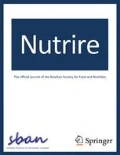
Nutritional and health-beneficial values of almond nuts consumption
2023 Nov 02 Nutrire Ouzir M
Review Article Cardiovascular Disease Cognitive Function Almond Type 2 Diabetes ObesityAlmond consumption has beneficial impacts on cardiovascular diseases, diabetes, obesity, and it can improve cognitive performance and protect against skin aging.

Effects of olive oil on hepatic steatosis and liver enzymes: A systematic review
2023 Oct Journal of Functional Foods Ma Y, Ding X, Gu J, Zhou S, Jiang Y
The systematic review concludes that olive oil, used for eating or cooking in randomized controlled trials, demonstrated significant reductions in hepatic steatosis grading through ultrasound and decreases in aspartate transaminase and alanine transaminase levels, suggesting promise in ameliorating hepatic steatosis. However, further investigations are needed to explore the potential effects of different olive oil types or olive polyphenols on chronic liver ailments.
Systematic Review Randomised Controlled Trial Obesity Liver Enzymes Olive Oil Fatty Liver Disease Type 2 Diabetes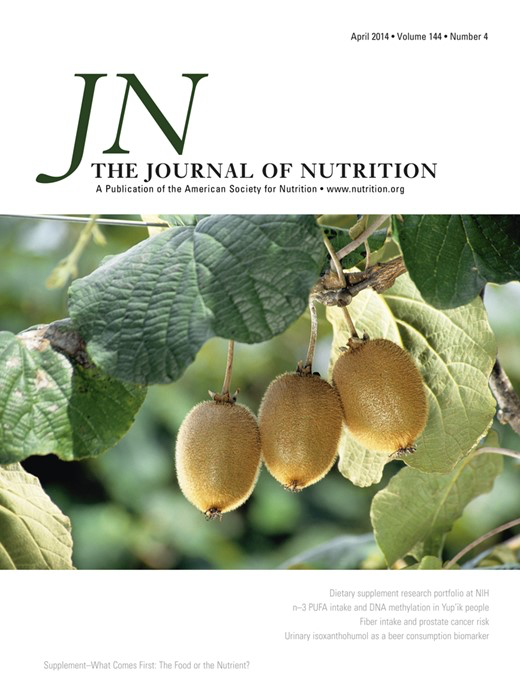
Associations between Metabolomic Biomarkers of Avocado Intake and Glycemia in the Multi-Ethnic Study of Atherosclerosis
2023 Oct The Journal of Nutrition Wood AC, Goodarzi MO, Senn MK, Gadgil MD, Graca G, Allison MA, et al.
Cohort Study Blood SugarAvocado consumption is linked to better glucose regulation, with metabolomic biomarkers of avocado intake showing even stronger associations with lower glycemia.

Intermittent fasting: A promising dietary intervention for autoimmune diseases
2023 Oct Autoimmunity Reviews Barati M, Ghahremani A, Namdar Ahmadabad H
Systematic Review Intermittent Fasting Type 1 Diabetes Autoimmune Diseases Rheumatoid ArthritisIntermittent fasting may potentially influence autoimmune diseases like type 1 diabetes and rheumatoid arthritis, by reducing inflammation and supporting cellular repair mechanisms.
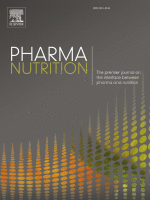
Soy protein, bioactive peptides, and isoflavones: A review of their safety and health benefits
2023 Sep PharmaNutrition Tan ST, Tan SS, Tan CX
Review Article Type 2 Diabetes Soybean Osteoporosis Isoflavone Cholesterol High Blood PressureSoy protein, bioactive peptides, and isoflavones are generally safe for consumption and may help reduce the risk of several significant health conditions.
Research insights are moderated by the Research Hub team and offer an at-a-glance overview of interesting research findings.

2023 Nutrire
Almond consumption has beneficial impacts on cardiovascular diseases, diabetes, obesity, and it can improve cognitive performance and protect against skin aging.
Review Article Almond Cardiovascular Disease Cognitive Function Obesity Type 2 Diabetes
Nutritional and health-beneficial values of almond nuts consumption
Ouzir M

2023 Autoimmunity Reviews
Intermittent fasting may potentially influence autoimmune diseases like type 1 diabetes and rheumatoid arthritis, by reducing inflammation and supporting cellular repair mechanisms.
Systematic Review Autoimmune Diseases Intermittent Fasting Rheumatoid Arthritis Type 1 Diabetes
Intermittent fasting: A promising dietary intervention for autoimmune diseases
Barati M, Ghahremani A, Namdar Ahmadabad H

2023 The Journal of Nutrition
Avocado consumption is linked to better glucose regulation, with metabolomic biomarkers of avocado intake showing even stronger associations with lower glycemia.
Cohort Study Blood Sugar
Associations between Metabolomic Biomarkers of Avocado Intake and Glycemia in the Multi-Ethnic Study of Atherosclerosis
Wood AC, Goodarzi MO, Senn MK, Gadgil MD, Graca G, Allison MA, et al.

2023 PharmaNutrition
Soy protein, bioactive peptides, and isoflavones are generally safe for consumption and may help reduce the risk of several significant health conditions.
Review Article Cholesterol High Blood Pressure Isoflavone Osteoporosis Soybean
Soy protein, bioactive peptides, and isoflavones: A review of their safety and health benefits
Tan ST, Tan SS, Tan CX
2023 Journal of Microbiology and Biotechnology
Soybean intake can potentially reduce risks of several cancers, type 2 diabetes, osteoporosis, and hot flashes, and it may negatively impact some drug treatments and cause allergies.
Review Article Breast Cancer Hot Flushes Osteoporosis Soybean Type 2 Diabetes
Benefits of Soybean in the Era of Precision Medicine: A Review of Clinical Evidence
Kang JH, Dong Z, Shin SH
Review Articles
Review articles summarise and critically evaluate the current state of research on a specific topic or field by synthesising multiple primary research studies.

Nutritional and health-beneficial values of almond nuts consumption
2023 Nov 02 Nutrire Ouzir M
Review Article Cardiovascular Disease Cognitive Function Almond Type 2 Diabetes ObesityAlmond consumption has beneficial impacts on cardiovascular diseases, diabetes, obesity, and it can improve cognitive performance and protect against skin aging.

Effects of olive oil on hepatic steatosis and liver enzymes: A systematic review
2023 Oct Journal of Functional Foods Ma Y, Ding X, Gu J, Zhou S, Jiang Y
The systematic review concludes that olive oil, used for eating or cooking in randomized controlled trials, demonstrated significant reductions in hepatic steatosis grading through ultrasound and decreases in aspartate transaminase and alanine transaminase levels, suggesting promise in ameliorating hepatic steatosis. However, further investigations are needed to explore the potential effects of different olive oil types or olive polyphenols on chronic liver ailments.
Systematic Review Randomised Controlled Trial Obesity Liver Enzymes Olive Oil Fatty Liver Disease Type 2 Diabetes
Intermittent fasting: A promising dietary intervention for autoimmune diseases
2023 Oct Autoimmunity Reviews Barati M, Ghahremani A, Namdar Ahmadabad H
Systematic Review Intermittent Fasting Type 1 Diabetes Autoimmune Diseases Rheumatoid ArthritisIntermittent fasting may potentially influence autoimmune diseases like type 1 diabetes and rheumatoid arthritis, by reducing inflammation and supporting cellular repair mechanisms.

Soy protein, bioactive peptides, and isoflavones: A review of their safety and health benefits
2023 Sep PharmaNutrition Tan ST, Tan SS, Tan CX
Review Article Type 2 Diabetes Soybean Osteoporosis Isoflavone Cholesterol High Blood PressureSoy protein, bioactive peptides, and isoflavones are generally safe for consumption and may help reduce the risk of several significant health conditions.

State-of-the-art review of theabrownins: from preparation, structural characterization to health-promoting benefits
2023 Aug 16 Critical Reviews in Food Science and Nutrition Cheng L, Wei Y, Peng L, Wei K, Liu Z, Wei X
Review ArticleTheabrownins, a major ingredient in dark tea, significantly contribute to multiple health benefits by modulating lipid metabolism, reducing weight gain, and preventing diseases, surpassing other tea types.
Clinical Trials
Clinical trials are research studies that involve people and are conducted to evaluate the safety and efficacy of new treatments or interventions, such as drugs, medical devices, or behavioural therapies.

Effects of olive oil on hepatic steatosis and liver enzymes: A systematic review
2023 Oct Journal of Functional Foods Ma Y, Ding X, Gu J, Zhou S, Jiang Y
The systematic review concludes that olive oil, used for eating or cooking in randomized controlled trials, demonstrated significant reductions in hepatic steatosis grading through ultrasound and decreases in aspartate transaminase and alanine transaminase levels, suggesting promise in ameliorating hepatic steatosis. However, further investigations are needed to explore the potential effects of different olive oil types or olive polyphenols on chronic liver ailments.
Systematic Review Randomised Controlled Trial Obesity Liver Enzymes Olive Oil Fatty Liver Disease Type 2 Diabetes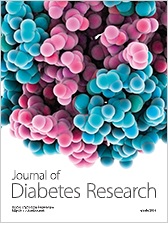
Vitamin D Supplementation for the Treatment of Depressive Symptoms in Women with Type 2 Diabetes: A Randomized Clinical Trial
2022 Mar 03 Journal of Diabetes Research Penckofer S, Ridosh M, Adams W, Grzesiak M, Woo J, Byrn M, et al.
Randomised Controlled Trial Depression Type 2 DiabetesVitamin D supplementation effectively improves depressive symptoms in women with type 2 diabetes and low vitamin D levels, regardless of the dose administered.
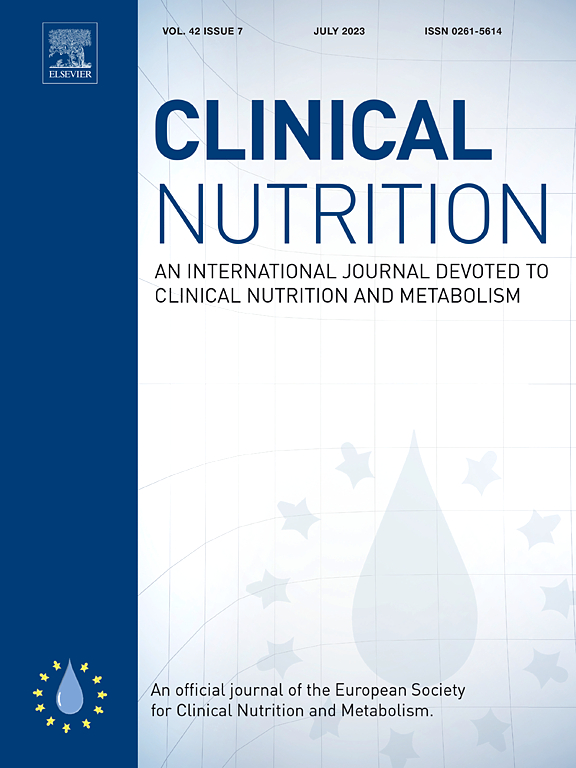
Type 2 diabetes preventive effects with a 12-months sardine-enriched diet in elderly population with prediabetes: An interventional, randomized and controlled trial
2021 May Clinical Nutrition Díaz-Rizzolo DA, Serra A, Colungo C, Sala-Vila A, Sisó-Almirall A, Gomis R
Randomised Controlled Trial Cardiovascular Disease Diabetes Sardine Anti-DiabeticEating sardines twice a week for a year significantly reduces the risk of developing type 2 diabetes in prediabetic individuals aged 65 and above.
A one-year, sardine-enriched diet in an elderly population with pre-diabetes exerts a greater protective effect against developing type 2 diabetes and cardiovascular events.
The effect of oat bran consumption on gestational diabetes: a randomized controlled clinical trial
2021 Apr 13 BMC Endocrine Disorders Barati Z, Iravani M, Karandish M, Haghighizadeh MH, Masihi S
Randomised Controlled Trial Gestational Diabetes OatsAdding oat bran to the diet of pregnant women with gestational diabetes can help significantly reduce their fasting and postprandial blood glucose levels.

Effect of dietary supplementation with oat β-glucan for 3 months in subjects with type 2 diabetes: A randomized, double-blind, controlled clinical trial
2021 Feb Journal of Functional Foods Pino JL, Mujica V, Arredondo M
Randomised Controlled Trial Gut Microbiota Satiety HbA1C Type 2 Diabetes Blood Sugar OatsEnriching a regular diet with oat β-glucan can improve glycemic control, augment feelings of fullness, and positively modulate gut microbiota in individuals with type-2 diabetes.
Study Protocols
Published study protocols are detailed plans that outline the objectives, methodology, statistical analyses, and organisation of a research study that have been made publicly available for others to review and use as a reference.

Acupuncture for Impaired Glucose Tolerance in People With Obesity: A Protocol for a Multicenter Randomized Controlled Trial
2022 Jul 12 Frontiers in Medicine Yan Y, Sun Y, Wang X, Zhu L, Chen Y, Liu Z
This study aims to provide quantitative clinical evidence of acupuncture effectiveness and safety in treating IGT in people who are overweight/obese.
Study Protocol Impaired glucose tolerance Obesity
Efficacy and safety of acupuncture combined with Chinese herbal medicine in the treatment of type 2 diabetes mellitus: A protocol for a systematic review and meta-analysis
2021 Oct 29 Medicine Bao, Pengjie MD, PhDa; Mi, Jia MD, PhDa, b; Yu, et al.
This study will generate evidence-based data on the treatment of T2DM with acupuncture combined with Chinese herbal medicine and will provide new ideas and treatment modalities to investigate in future research.
Study Protocol Chinese Herbal Medicine Type 2 Diabetes
Efficacy and safety of acupuncture combined with Chinese herbal medicine in the treatment of type 2 diabetes mellitus
2021 Oct 29 Medicine Bao P, Mi J, Yu Z, Liu L, Zhu Z, Liu S, et al.
This study will generate evidence-based data on the treatment of T2DM with acupuncture combined with Chinese herbal medicine and will provide new ideas and treatment modalities to investigate in future research.
Study Protocol Chinese Herbal Medicine Acupuncture
Efficacy and safety of acupuncture combined with Chinese Herbal Medicine for diabetic nephropathy
2021 Sep 03 Medicine Yu Z, Zhang W, Li B, Bao P, Wang F, Sun J, et al.
This systematic review will provide evidence to determine whether acupuncture combined with Chinese herbal medicine is an effective and safe intervention for patients with DN.
Study Protocol Chinese Herbal Medicine Acupuncture Diabetic NephropathyPresentation Slides

Review Article
Almond consumption has beneficial impacts on cardiovascular diseases, diabetes, obesity, and it can improve cognitive performance and protect against skin aging.
Ouzir M

Systematic Review
Intermittent fasting may potentially influence autoimmune diseases like type 1 diabetes and rheumatoid arthritis, by reducing inflammation and supporting cellular repair mechanisms.
Barati M, Ghahremani A, Namdar Ahmadabad H

Cohort Study
Avocado consumption is linked to better glucose regulation, with metabolomic biomarkers of avocado intake showing even stronger associations with lower glycemia.
Wood AC, Goodarzi MO, Senn MK, Gadgil MD, Graca G, Allison MA, Tzoulaki I, Mi MY, Greenland P, Ebbels T, Elliott P, Tracy RP, Herrington DM, Rotter JI

Review Article
Soy protein, bioactive peptides, and isoflavones are generally safe for consumption and may help reduce the risk of several significant health conditions.
Tan ST, Tan SS, Tan CX

Review Article
Soybean intake can potentially reduce risks of several cancers, type 2 diabetes, osteoporosis, and hot flashes, and it may negatively impact some drug treatments and cause allergies.
Kang JH, Dong Z, Shin SH

Review Article
Theabrownins, a major ingredient in dark tea, significantly contribute to multiple health benefits by modulating lipid metabolism, reducing weight gain, and preventing diseases, surpassing other tea types.
Cheng L, Wei Y, Peng L, Wei K, Liu Z, Wei X

Cohort Study
Consuming “Sneznik-1/79” mineral water significantly improves intestinal health and reduces cholesterol in type 2 diabetes patients.
Jovicic N, Andjic M, Novakovic J, Jeremic N, Zivkovic V, Srejovic I, Stanojevic D, Ristic P, Bolevich S, Jakovljevic V
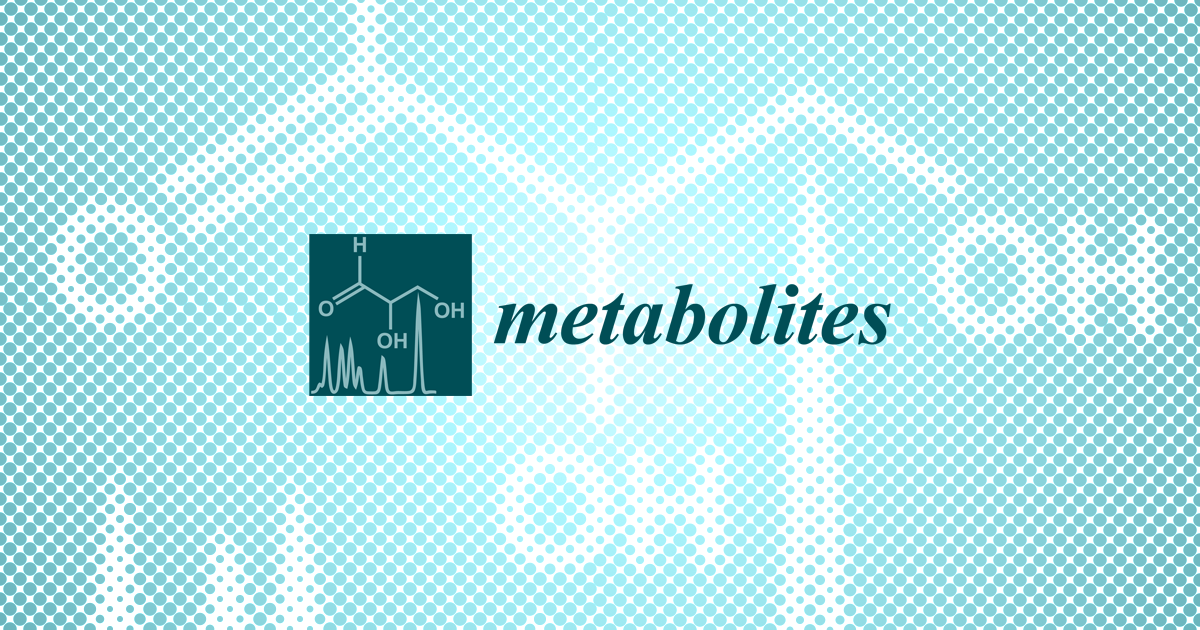
Cohort Study
Frequent consumption of sugar-sweetened coffee can adversely affect blood sugar control in patients with diabetes mellitus in Korea.
Yoo H, Park K
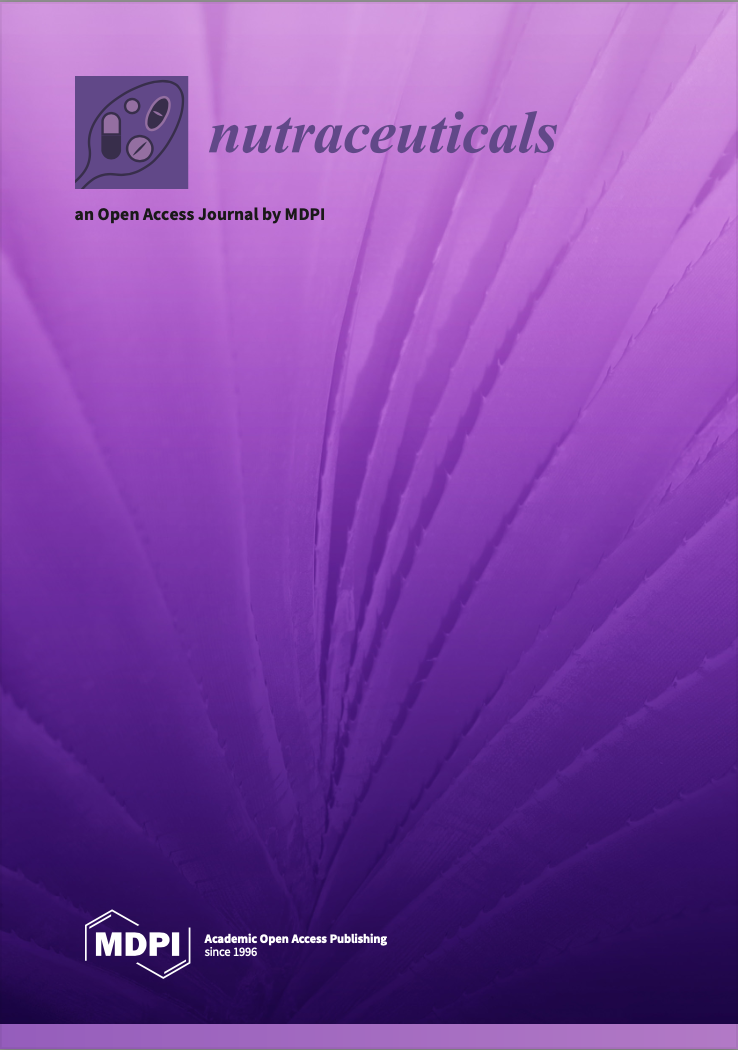
Animal Study
A. lappa (burdock root) benefits diabetic rodents by reducing blood glucose and improving lipids, but human effects are uncertain
Watanabe S, Yamabe S, Shimada M
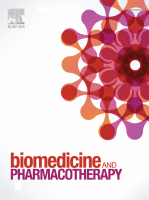
Review Article
Pomegranate extract and its phytochemicals can potentially inhibit severe acute respiratory syndrome coronavirus 2 (SARS-COV-2) and improve gut microbiota, preventing obesity and diabetes.
Maphetu N, Unuofin JO, Masuku NP, Olisah C, Lebelo SL

Review Article
Bee pollen, enriched with multiple nutrients, serves as a protective shield against a variety of ailments such as diabetes, allergies, and cancers, and potentially useful in cosmetic applications.
Algethami JS, El-Wahed AAA, Elashal MH, Ahmed HR, Elshafiey EH, Omar EM, Naggar YA, Algethami AF, Shou Q, Alsharif SM, Xu B, Shehata AA, Guo Z, Khalifa SAM, Wang K, El-Seedi HR
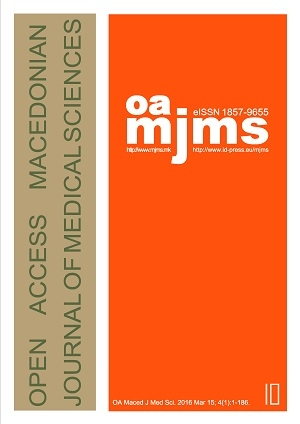
Systematic Review
Pumpkin seeds, in combination with other plants, show potential as an alternative treatment method for diabetes mellitus.
Tasya Z, Amiruddin R, Syam A, Thamrin Y

Review Article
Cherries and blueberries, rich in phenolic compounds, can be effectively used in pharmaceutical products, smart foods, functional beverages, and nutraceuticals to prevent or treat diseases.
Gonçalves AC, Nunes AR, Flores-Félix JD, Alves G, Silva LR
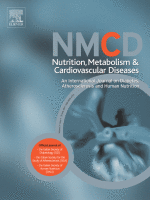
Meta-Analysis
Blueberry and cranberry consumption significantly lowered fasting blood glucose and glycated hemoglobin levels in individuals with diabetes.
Delpino FM, Figueiredo LM, Gonçalves da Silva T, Flores TR

Review Article
Extra virgin olive oil (EVOO) has beneficial health properties and can promote cardiovascular health, lipoprotein metabolism, and diabetes management in clinical nutrition.
Jiménez-Sánchez A, Martínez-Ortega AJ, Remón-Ruiz PJ, Piñar-Gutiérrez A, Pereira-Cunill JL, García-Luna PP

Review Article
Purple carrot roots, rich in bioactive compounds like anthocyanin, may be effective in preventing metabolic syndrome and cancer by reducing inflammation and metabolic changes.
Rasheed H, Shehzad M, Rabail R, Kowalczewski P, Kidoń M, Jeżowski P, Ranjha MMAN, Rakha A, Din A, Aadil RM

Randomised Controlled Trial
Vitamin D supplementation effectively improves depressive symptoms in women with type 2 diabetes and low vitamin D levels, regardless of the dose administered.
Penckofer S, Ridosh M, Adams W, Grzesiak M, Woo J, Byrn M, Kouba J, Sheean P, Kordish C, Durazo-Arvizu R, Wallis D, Emanuele MA, Halaris A

Systematic Review
Mao Xu Cao has shown potential in treating diabetes and its complications by influencing metabolic processes and displaying antioxidant and anti-inflammatory properties.
Wang Q, Wang J, Li N, Liu J, Zhou J, Zhuang P, Chen H
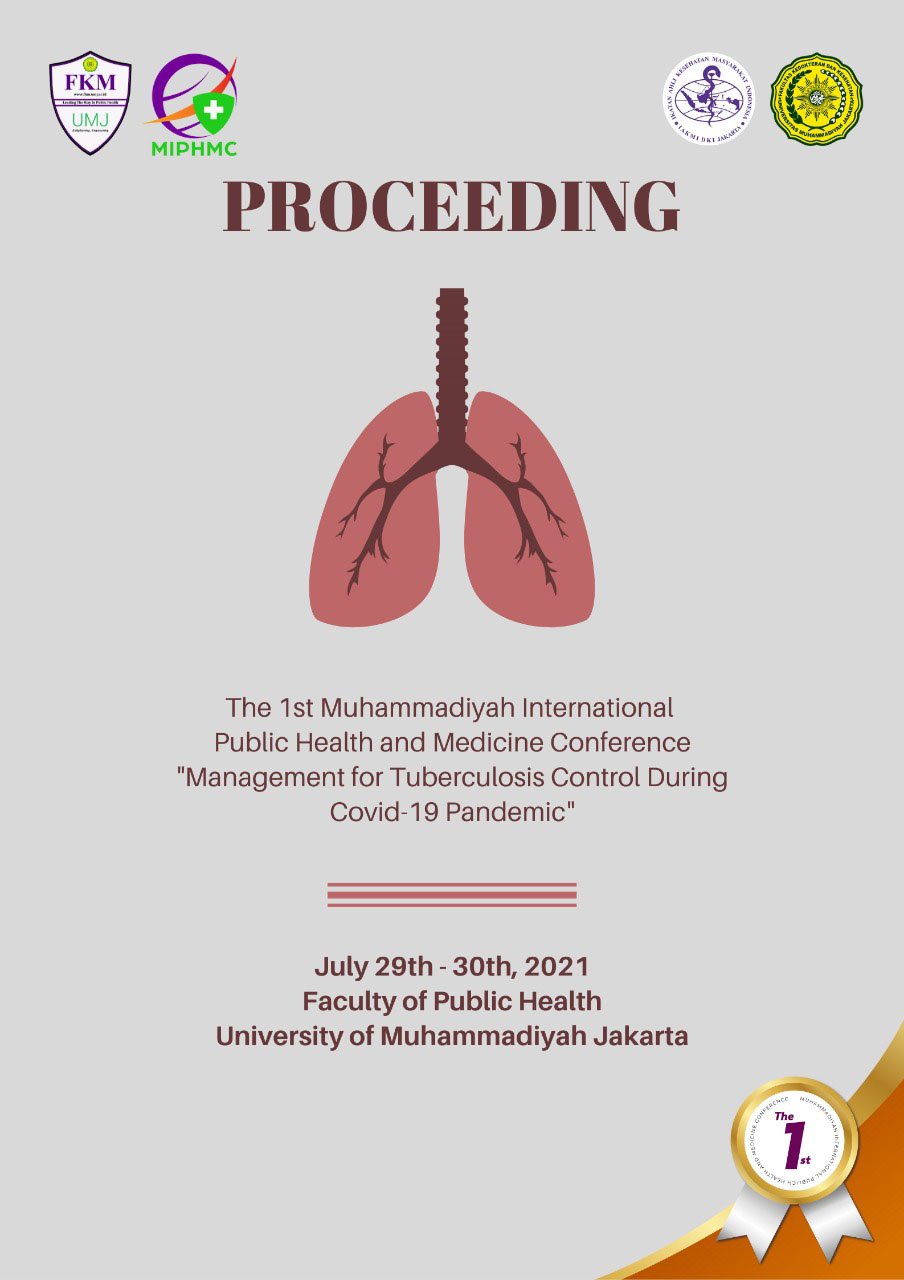
Cohort Study
Consumption of sardines can effectively prevent type 2 diabetes mellitus and hypertension, particularly in senior citizens, due to their high omega 3, EPA, and DHA content.
Nurdiana Febriyanti V

Cohort Study
Sardines are highly proven to be able to effectively prevent type 2 diabetes, prevent hypertension, and lower blood pressure, especially for senior citizens.
Nurdiana Febriyanti V

Systematic Review
Almond-based diets may be effective in promoting short-chain fatty acid-producing bacteria and lowering glycated haemoglobin and body mass index in patients with type 2 diabetes compared with control.
Ojo O, Wang XH, Ojo OO, Adegboye ARA

Review Article
Coffee consumption may contribute to the prevention of several inflammatory diseases and types of cancer, with reduced mortality risk deemed safe up to 400mg of caffeine per day.
Barrea L, Pugliese G, Frias-Toral E, El Ghoch M, Castellucci B, Chapela SP, Carignano MA, Laudisio D, Savastano S, Colao A, Muscogiuri G

Systematic Review
Drinking coffee may be linked to lower mortality risk in type 2 diabetes patients.
Shahinfar H, Jayedi A, Khan TA, Shab-Bidar S

Systematic Review
Apple cider vinegar intake can significantly decrease total cholesterol and fasting plasma glucose levels contributing to better cardiovascular health among adults.
Hadi A, Pourmasoumi M, Najafgholizadeh A, Clark CCT, Esmaillzadeh A
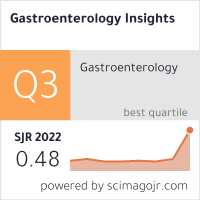
Review Article
Tea polyphenols can help rebalance gut microbiota, alleviating imbalances caused by obesity, diabetes, and UV damage, with effects varying by tea type.
Khairudin MAS, Mhd Jalil AM, Hussin N

Randomised Controlled Trial
Eating sardines twice a week for a year significantly reduces the risk of developing type 2 diabetes in prediabetic individuals aged 65 and above.
Díaz-Rizzolo DA, Serra A, Colungo C, Sala-Vila A, Sisó-Almirall A, Gomis R

Randomised Controlled Trial
A one-year, sardine-enriched diet in an elderly population with pre-diabetes exerts a greater protective effect against developing type 2 diabetes and cardiovascular events.
Díaz-Rizzolo DA, Serra A, Colungo C, Sala-Vila A, Sisó-Almirall A, Gomis R

Randomised Controlled Trial
Adding oat bran to the diet of pregnant women with gestational diabetes can help significantly reduce their fasting and postprandial blood glucose levels.
Barati Z, Iravani M, Karandish M, Haghighizadeh MH, Masihi S

Randomised Controlled Trial
Enriching a regular diet with oat β-glucan can improve glycemic control, augment feelings of fullness, and positively modulate gut microbiota in individuals with type-2 diabetes.
Pino JL, Mujica V, Arredondo M
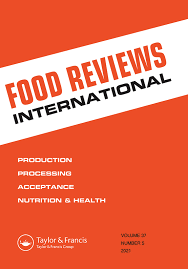
Review Article
Oily fish, particularly sardines, due to their high omega-3 and taurine content, may play a protective role in slowing the progression towards type 2 diabetes.
Díaz-Rizzolo DA, Miro A, Gomis R
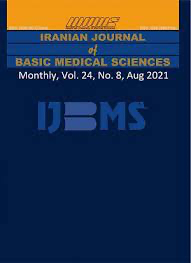
Review Article
Eggplant can be useful in the treatment of metabolic syndrome and its complications.
Yarmohammadi, F., Ghasemzadeh Rahbardar, M., Hosseinzadeh, H
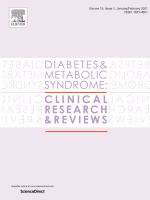
Systematic Review
The supplementary intake of green tea does not significantly affect blood glucose, fasting insulin, hemoglobin A1c, and insulin resistance in patients with type 2 diabetes mellitus.
Asbaghi O, Fouladvand F, Gonzalez MJ, Ashtary-Larky D, Choghakhori R, Abbasnezhad A
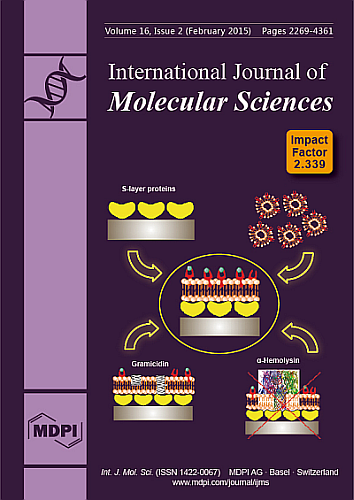
Review Article
Regular coffee consumption, due to its bioactive compounds, may have protective effects against chronic disorders and certain neurodegenerative conditions.
Socała K, Szopa A, Serefko A, Poleszak E, Wlaź P
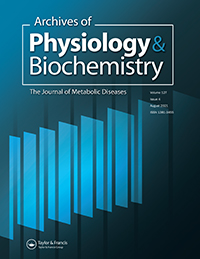
Systematic Review
Green tea supplementation raises adiponectin levels in patients with type 2 diabetes mellitus.
Asbaghi O, Fouladvand F, Ashtary-Larky D, Bagheri R, Choghakhori R, Wong A, Baker JS, Abbasnezhad A
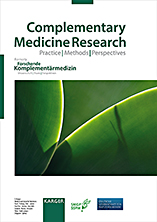
Systematic Review
Green tea consumption notably reduces body weight, body mass index, and body fat, especially in long-term use, at lower dosages, and among overweight individuals with type-2 diabetes.
Asbaghi O, Fouladvand F, Gonzalez MJ, Aghamohammadi V, Choghakhori R, Abbasnezhad A

Review Article
Citrus species are valuable natural sources of flavonoids and a promising source for future treatments aimed at the prevention and management of diabetes and related complications.
Gandhi GR, Vasconcelos ABS, Wu DT, Li HB, Antony PJ, Li H, Geng F, Gurgel RQ, Narain N, Gan RY.

Systematic Review
The literature overall supports an inverse association between green tea and cardiovascular disease-related health outcomes, while the included meta-analyses generally suggested an inverse association between green tea and BMI-related and blood pressure outcomes.
Abe SK, Inoue M

Systematic Review
Green tea extract supplement intake reduces serum triglyceride and total cholesterol in patients with type 2 diabetes mellitus, especially when used long term.
Asbaghi O, Fouladvand F, Moradi S, Ashtary-Larky D, Choghakhori R, Abbasnezhad A

Theoretical Article
Coffee, like many fruits and vegetables, activates a cellular response that boosts antioxidants and repair enzymes, which contributes to a lower risk of several diseases.
Kolb H, Kempf K, Martin S

Systematic Review
Cinnamon supplementation in type 2 diabetes patients significantly reduces systolic and diastolic blood pressure, but doesn't significantly affect body weight and waist circumference.
Jamali N, Jalali M, Saffari-Chaleshtori J, Samare-Najaf M, Samareh A

Systematic Review
These reports suggest the benefits of a walnut-enriched diet in brain disorders and in other chronic diseases, due to the additive or synergistic effects of walnut components for protection against oxidative stress and inflammation in these diseases.
Chauhan A, Chauhan V.
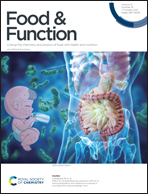
Review Article
Coffee and decaffeinated coffee appear to provide long-term protection against developing type 2 diabetes, potentially due to the influence of chlorogenic acids.
Williamson G

Review Article
Traditional Chinese medicine, especially Zuo Gui Wan, red raspberry leaves, and Orthosiphon stamineus, seems to control gestational diabetes effectively without reported toxicity.
Xu YXZ, Xi S, Qian X

There is low quality evidence that bitter melon adjunct preparations improved glycemic control in type 2 diabetes mellitus patients.
Peter EL, Kasali FM, Deyno S, Mtewa A, Nagendrappa PB, Tolo CU, Ogwang PE, Sesaazi D

Systematic Review
Consumption of virgin avocado oil, rich in monounsaturated fatty acids and bioactive components, may help manage chronic diseases like hypertension, diabetes, and lower cardiometabolic risk.
Tan CX
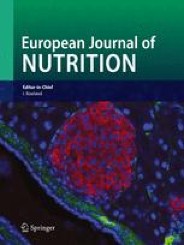
Systematic Review
Consumption of chocolate shows a possible slight reduction in risk for coronary heart disease and stroke, with no association with other chronic diseases studied.
Morze J, Schwedhelm C, Bencic A, Hoffmann G, Boeing H, Przybylowicz K, Schwingshackl L

Systematic Review
Acupuncture, regardless of the trial design, showed a positive effect on pain-related outcome measures for participants with diabetic peripheral neuropathy.
Nash J, Armour M, Penkala S

Systematic Review
Bioactive compounds present in different parts of radishes, such as leaves, sprouts, stem and roots, act on a variety of potential drug targets associated with ailments, such as cancer, inflammation, liver injury and diabetes.
Abinaya ManivannanOrcID,Jin-Hee Kim,Do-Sun Kim,Eun-Su Lee andHye-Eun Lee

Systematic Review
Black pepper, beyond its culinary use, offers medicinal benefits like antimicrobial, antioxidant, anticancer, anti-diabetic, and anti-inflammatory properties mainly attributed to the compound piperine.
Takooree H, Aumeeruddy MZ, Rengasamy KRR, Venugopala KN, Jeewon R, Zengin G, Mahomoodally MF

Randomised Controlled Trial
Consuming two SunGold kiwifruits daily over 12 weeks improved vitamin C status, reduced blood pressure, waist measurements and altered faecal microbiota composition in prediabetic individuals.
Wilson R, Willis J, Gearry R, Hughes A, Lawley B, Skidmore P, Frampton C, Fleming E, Anderson A, Jones L, Tannock G, Carr A
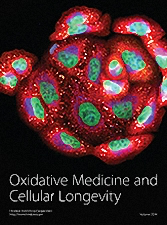
Review Article
Honey may be used as a potential antidiabetic agent that has the potential to reduce the complications of diabetes.
Bobiş O, Dezmirean DS, Moise AR

Systematic Review
Radish has been identified as having antidiabetic effects, making it favorable for those with diabetic conditions.
Saleem Ali Banihani

Systematic Review
Moderate chocolate consumption (up to 6 servings per week) is linked to a decreased risk of coronary heart disease, stroke, and diabetes, according to a meta-analysis of prospective studies.
Yuan S, Li X, Jin Y, Lu J
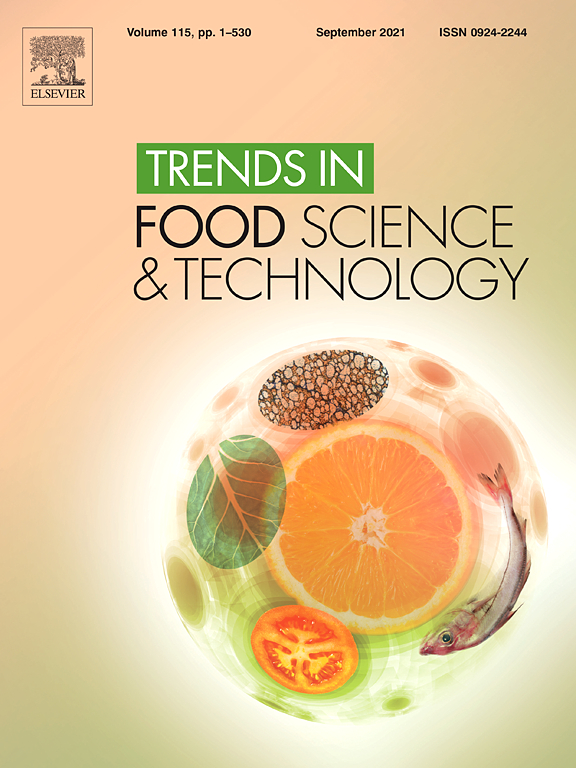
Review Article
The claimed health benefits of coix include anti-oxidation, anti-cancer, anti-inflammation, anti-allergy, enhancing immunological activity, regulating endocrine functions, anti-obesity, anti-diabetes, gastroprotection, hypolipidemia, and modulating gut microbiota.
Fan Zhu

Review Article
Coffee consumption, up to three cups a day, can reduce the risk of Type-2 diabetes and metabolic syndrome in adults.
Baspinar B, Eskici G, Ozcelik AO

Meta-Analysis
Fenugreek has hypoglycaemic and total cholesterol-lowering efficacy.
Gong J, Fang K, Dong H, Wang D, Hu M, Lu F.
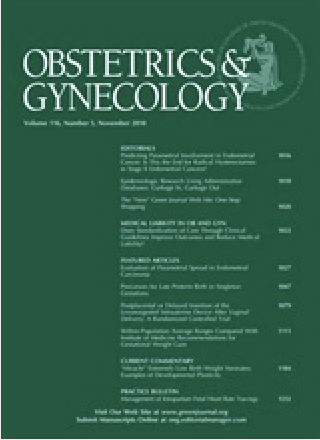
Case Report
Raspberry leaf consumption may decrease insulin requirements in pregnant women with gestational diabetes mellitus.
Cheang KI, Nguyen TT, Karjane NW, Salley KES
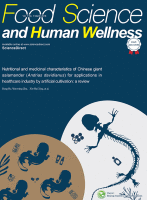
Experimental Study
Pu-erh tea water extracts could potentially enhance liver health and reduce oxidative stress in rats on a high-fat diet.
Jingjing Su, Xueqing Wang, Wenjun Song, Xiaoli Bai, Changwen Li
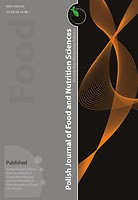
Review Article
Goji berries, classified as superfruits, possess potential beneficial implications in the dietary prevention of diseases like diabetes, cardiovascular diseases, and cancer.
Kulczyński B, Gramza-Michałowska A
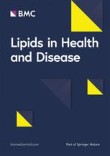
Randomised Controlled Trial
A sardine-enriched diet may have beneficial effects on cardiovascular risk and alters gut microbiota composition in patients with type 2 diabetes.
Balfegó M, Canivell S, Hanzu FA, Sala-Vila A, Martínez-Medina M, Murillo S, Mur T, Ruano EG, Linares F, Porras N, Valladares S, Fontalba M, Roura E, Novials A, Hernández C, Aranda G, Sisó-Almirall A, Rojo-Martínez G, Simó R, Gomis R
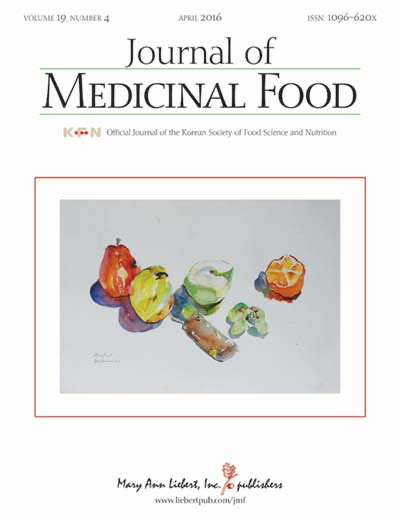
Systematic Review
The studies assessed showed that sesame could have a significant effect on oxidative stress and the antioxidant defense system, being considered a food with an important antioxidant function in the different populations studied.
Gouveia Lde A, Cardoso CA, de Oliveira GM, Rosa G, Moreira AS.
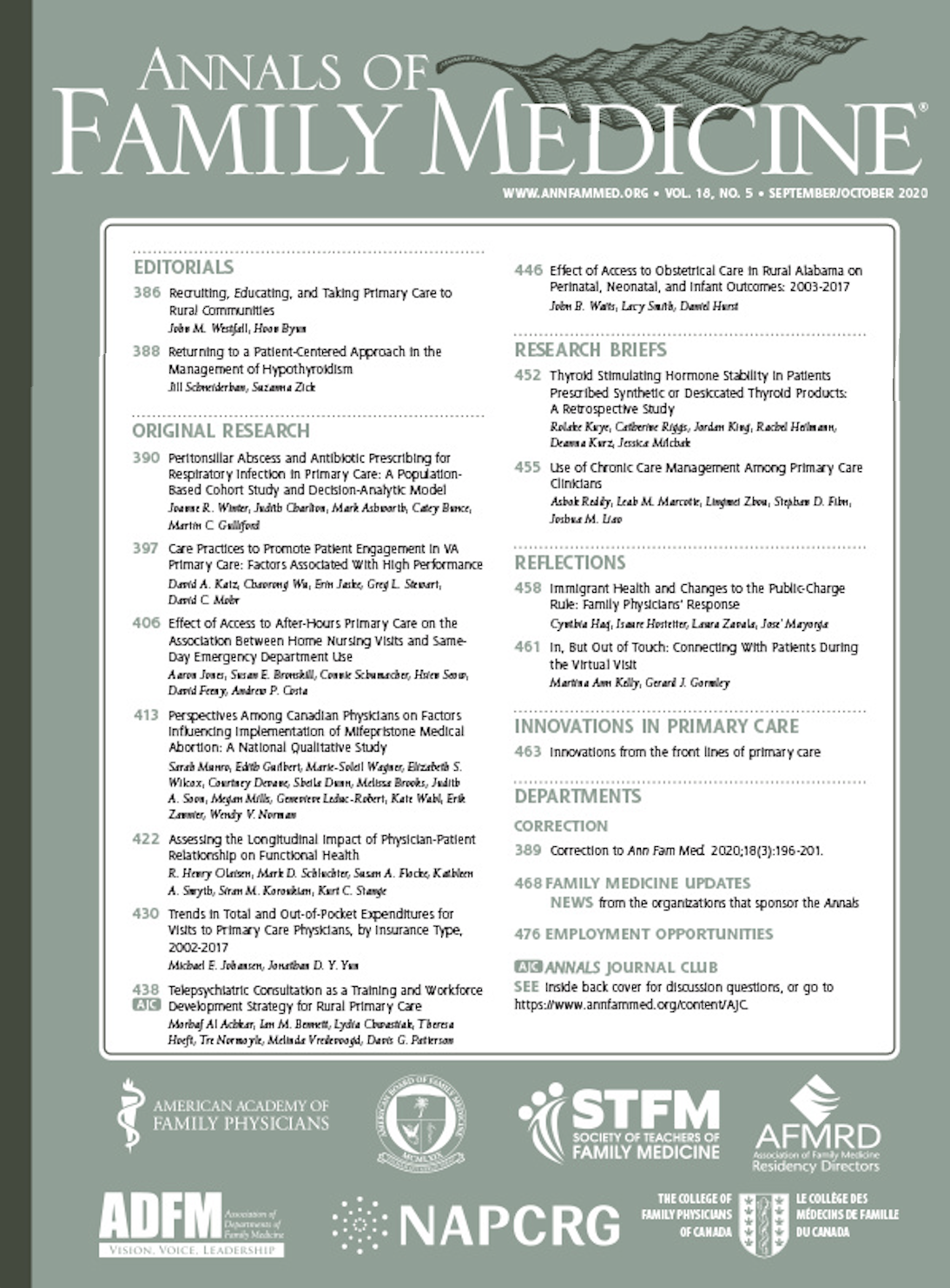
Systematic Review
The consumption of cinnamon is associated with a statistically significant decrease in levels of fasting plasma glucose, total cholesterol, LDL-C, and triglyceride levels, and an increase in HDL-C levels.
Robert W. Allen, Emmanuelle Schwartzman, William L. Baker, Craig I. Coleman and Olivia J. Phung

Experimental Study
Pumpkin seeds and their extracts, including Trigonelline, Nicotinic acid, and D-chiro-inositol, offer potential for controlling blood sugar levels in diabetes patients.
Adams GG, Imran S, Wang S, Mohammad A, Kok MS, Gray DA, Channell GA, Harding SE
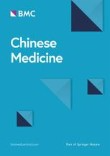
Systematic Review
Long-term consumption of tea catechins could be beneficial against high-fat diet-induced obesity and type II diabetes and could reduce the risk of coronary disease.
Chacko, S.M., Thambi, P.T., Kuttan, R. et al.
Executive Summary
Write an executive summary in the form of a blog article on the topic of "Research into Chinese medicine treatment for Diabetes" summarising the research below and using language that can be easily understood by patients and avoiding medical jargon using a professional and caring tone of voice.
Write an executive summary in the form of a blog article on the topic of "Researched Chinese medicine treatments for Diabetes" summarising the research below in an objective and easy to understand way, and using language that can be easily understood by patients. Group the article into Chinese medicine treatments first, followed by nutrition and other treatments. Avoid using medical jargon and use a professional and caring tone of voice.
Write me a concise but easy to understand executive summary on the topic of "Chinese medicine treatments for Diabetes" based on the following research that I will give you. Your summary should be 2 paragraphs long in Australian English spelling and include references to the studies.
A Review Article published in 2023 in the journal Nutrire found that Almond consumption has beneficial impacts on cardiovascular diseases, diabetes, obesity, and it can improve cognitive performance and protect against skin aging. The methodology employed in this study included analyzing a range of clinical studies centered on the health benefits linked to the consumption of sweet almond nuts. Various health outcomes correlated with almond consumption were investigated such as body weight, food intake, blood pressure, blood lipid composition, glucose and insulin levels, oxidative status, liver enzymes, and some inflammation biomarkers. The discussion of the results reveals that almond consumption has been found to create favorable alteration in aspects like body weight, food intake, blood pressure, blood lipid composition, glucose, and insulin levels, as well as oxidative status, liver enzymes, and inflammation biomarkers. These findings highlight the beneficial impact of almonds on multiple health issues including cardiovascular diseases, diabetes, and obesity. Additionally, the consumption of almonds has been associated with improved cognitive performance and protection against skin photodamage and aging.
A Systematic Review published in 2023 in the journal Autoimmunity Reviews found that Intermittent fasting may potentially influence autoimmune diseases like type 1 diabetes and rheumatoid arthritis, by reducing inflammation and supporting cellular repair mechanisms. Extensive research was done through several electronic databases such as PubMed, Scopus, Embase, and Web of Science. Rigorous inclusion criteria were applied to filter the most relevant studies on the effects of intermittent fasting on autoimmune diseases. No reference to further research trials was mentioned in the methodology. The results indicate a potential link between intermittent fasting and the management of certain autoimmune diseases. Autoimmune diseases like type 1 diabetes, rheumatoid arthritis, and systemic lupus erythematosus exhibited improvements owing to the reduction in inflammatory markers, improvement in gut microbiota, and enhanced cellular repair resulting from autophagy induced by intermittent fasting. However, results concerning other autoimmune diseases like multiple sclerosis, systemic lupus erythematosus, thyroid diseases, and psoriasis were inconclusive.
A Cohort Study published in 2023 in the journal The Journal of Nutrition found that Avocado consumption is linked to better glucose regulation, with metabolomic biomarkers of avocado intake showing even stronger associations with lower glycemia. The study used baseline data from 6224 multi-ethnic older adults, including self-reported avocado intake, fasting glucose and insulin. Untargeted plasma proton nuclear magnetic resonance contributed to metabolomic features, with data available for a subset of 3438 participants. The researchers then assessed the incidence of type 2 diabetes over approximately an 18-year follow-up period. They conducted a metabolome-wide association study comparing avocado consumers to nonconsumers and examined the features' associations with glycemia, both cross-sectionally with fasting insulin and glucose, and longitudinally with the incidence of type 2 diabetes. The research identified three highly-correlated spectral features associated with avocado intake at metabolome-wide significance levels and grouped into a single biomarker. These features didn't demonstrate any strong associations with overall dietary quality or any of the 47 other food groups, reinforcing their validity as an avocado intake biomarker. While avocado intake had a modest effect on lowering fasting insulin, this effect was not significant when adjusting for participants' body mass index. However, the avocado intake biomarker was noticeably related to lower fasting glucose, lower fasting insulin, and a lower incidence of type 2 diabetes, even after adjusting for BMI. This illustrates the considerable influence of metabolomic insights in determining diet-health relationships and the importance of considering individual metabolic differences for health outcomes.
A Review Article published in 2023 in the journal PharmaNutrition found that Soy protein, bioactive peptides, and isoflavones are generally safe for consumption and may help reduce the risk of several significant health conditions. Methodology: This review followed the Preferred Reporting Items for Systematic reviews and Meta-Analyses guidelines. It began with a sophisticated multi-database search, featuring resources like Google Scholar, Scopus, and others. This search targeted articles published from 2017 to March 2023 and used specific keywords for accuracy. Forty-three articles were handpicked from this process after excluding reviews, conference reports, duplicates, inaccessible texts, and any non-English publications. Discussion of Results: A thorough examination of the chosen articles resulted in the conclusion that soy proteins, soy bioactive peptides, and soy isoflavones are typically safe for human consumption. Furthermore, it was found that the consumption of these compounds may have beneficial effects, potentially lowering risk factors for ailments such as osteoporosis, various cancers, hypertension, atherosclerosis, and more.
A Review Article published in 2023 in the journal Journal of Microbiology and Biotechnology found that Soybean intake can potentially reduce risks of several cancers, type 2 diabetes, osteoporosis, and hot flashes, and it may negatively impact some drug treatments and cause allergies. This research primarily involves review and analysis of current clinical studies focusing on the benefits and risks of soybean ingredients. The method appears to be a systematic review of various epidemiological studies which were investigating the correlation between soybean consumption and the risk of developing multiple types of cancers including breast, prostate, colorectal, ovarian, and lung cancers. Besides cancer, other common diseases such as type 2 diabetes, osteoporosis, and menopausal symptoms like hot flashes were also investigated. Moreover, any potential adverse effects of soybean, including its possible detrimental impact on certain drug treatments and its allergenicity, were also factors of study in these clinical evidences. In the discussion of results, the researchers found a significant inverse association between soybean intake and cancer risks, wherein an increase in the consumption of soybean foods was associated with a reduced likelihood of cancer. Besides showing potential anticancer properties, soybean consumption was found inversely correlated with risks of type 2 diabetes. Soy isoflavones, compounds present in soybeans, also showed potential benefits in the management of osteoporosis and hot flashes. On the other hand, the adverse effects of soybean, including interference with certain drug therapies and causing allergies, were also duly noted. Therefore, the research concludes that while soybean promises several significant health benefits, caution should be exercised for individuals under specific drug treatments or with allergies to soy.
A Review Article published in 2023 in the journal Critical Reviews in Food Science and Nutrition found that Theabrownins, a major ingredient in dark tea, significantly contribute to multiple health benefits by modulating lipid metabolism, reducing weight gain, and preventing diseases, surpassing other tea types. The research focuses on theabrownins, macromolecular pigments found in dark tea, believed to have numerous health benefits. These pigments derive from the oxidative polymerization of tea polyphenols and are observed to have a reddish-brown color and a mellow taste. One of the primary aspects of the research is the method of generation of theabrownins, which is mainly through microbial fermentation. This method seemingly enhances the health-promoting qualities of dark tea, especially its hypolipidemic effect, compared to other tea variants. The results of the study affirm the host of health benefits provided by theabrownins - including the modulation of lipid metabolism, reduction in body weight gain, attenuation of diabetes, mitigation of NAFLD, scavenging ROS, and prevention of tumors. Particular attention was given to the role that theabrownins play in influencing the gut microbiota, leading to significant health benefits. Despite some limitations, these factual conclusions advocate the potential of dark tea in fostering human health, premised upon its theabrownins content.
A Cohort Study published in 2023 in the journal Heliyon found that Consuming “Sneznik-1/79” mineral water significantly improves intestinal health and reduces cholesterol in type 2 diabetes patients. The study involved 60 patients with confirmed Type 2 Diabetes, who drank “Sneznik-1/79” mineral water from Serbia daily for 28 days. Researchers conducted standard biochemical tests, including glucose level, lipid profile, and stool analysis. Additionally, blood samples were taken to assess the impact of the water on oxidative stress markers. Post consumption of “Sneznik-1/79” water, a substantial decrease in total cholesterol levels was noted. Notably, all patients experienced regular daily bowel movements, indicating improved intestinal peristalsis. Half of the participants showed elimination of dysbiosis. Furthermore, there was an increase in antioxidants like superoxide dismutase and reduced glutathione, suggesting enhanced antioxidant capacity. The study highlights “Sneznik-1/79” water as a potential complementary treatment for improving gut health and reducing cholesterol in Type 2 Diabetes patients.
A Cohort Study published in 2022 in the journal Metabolites found that Frequent consumption of sugar-sweetened coffee can adversely affect blood sugar control in patients with diabetes mellitus in Korea. This study focused on adult coffee consumption patterns in Korea using data collected from the Korea National Health and Nutrition Examination Survey between 2008 to 2020. The consuming habits of 5671 diabetic patients were analyzed considering how often they consumed a mixture of coffee with sugar and creamer, referred commonly as 3-in-1 coffee. The methods used involved assessing these patterns through a 24-hour recall. Blood sugar control was evaluated using fasting blood glucose levels and hemoglobin A1c levels, in line with the targets set by the Korean Diabetes Association. The results revealed that nearly half of the diabetic patients in this study consumed sugar-sweetened coffee. These patients demonstrated significantly higher fasting blood glucose and hemoglobin A1c levels compared to those who did not partake in such consumption. The findings also indicated an increased likelihood of patients failing to achieve their blood sugar control targets, corresponding to the frequency of their consumption of sugar-sweetened coffee.
A Animal Study published in 2022 in the journal Nutraceuticals found that A. lappa (burdock root) benefits diabetic rodents by reducing blood glucose and improving lipids, but human effects are uncertain This study analyzed the effects of A. lappa (burdock root) and related compounds on diabetic rodents. Results showed that these substances can lower blood glucose levels and improve triglyceride and cholesterol levels in these animals, depending on factors like the type of diabetes model used. However, it's essential to remember that these findings are based on animal studies, and we need more research to know if they apply to humans and prolonged use may have adverse effects.
A Review Article published in 2022 in the journal Biomedicine & Pharmacotherapy found that Pomegranate extract and its phytochemicals can potentially inhibit severe acute respiratory syndrome coronavirus 2 (SARS-COV-2) and improve gut microbiota, preventing obesity and diabetes. The study employs the use of in silico molecular docking methodologies to demonstrate that extract from pomegranates and their phytochemicals can serve as inhibitors of severe acute respiratory syndrome coronavirus 2's spike protein and the angiotensin-converting enzyme 2 receptor contact. These findings are further reinforced by clinical trials which suggest that pomegranates can also alleviate non-alcoholic fatty liver disease, metabolic syndrome, dental infections, and symptoms of menopause. This study has also identified numerous active compounds within pomegranates such as alkaloids, anthocyanidins, tannins, flavonoids, phenolics, proanthocyanidins, sterols, terpenes, terpenoids, xanthonoids, fatty acids, organic acids, lignans, saccharides, and vitamin C. This mixture of active compounds is believed to significantly contribute to the broad array of pharmacological activities identified within the pomegranate. This includes anti-diabetic, anti-tumor, anti-inflammatory, anti-malaria, anti-fibrotic, anti-fungal, and anti-bacterial effects. The extract from this fruit improves gut microbiota which could potentially aid in the prevention of obesity and diabetes.
A Review Article published in 2022 in the journal Nutrients found that Bee pollen, enriched with multiple nutrients, serves as a protective shield against a variety of ailments such as diabetes, allergies, and cancers, and potentially useful in cosmetic applications. The methodology employed involved a detailed review of clinical trials and patents related to the use of bee pollen. The researchers critically analyzed cases where bee pollen has been applied, particularly focusing on its use in treating allergies, prostate illnesses, cancer, and skin issues. Insights were also gained from the various patents and health recipes that utilize bee pollen to treat chronic health problems. In discussion of the results, it was found that bee pollen stands out for its multiple health benefits. Its impressive nutritional profile makes it a strong agent against diseases like diabetes, cancer, and cardiovascular conditions. Furthermore, the research indicated that bee pollen could be effectively utilized as a supplementary food given its nutrient richness. It was also observed that bee pollen holds a significant potential for usage in cosmetic applications, posing it as a natural and cost-effective choice for skincare and beauty industry.
A Systematic Review published in 2022 in the journal Open Access Macedonian Journal of Medical Sciences found that Pumpkin seeds, in combination with other plants, show potential as an alternative treatment method for diabetes mellitus. Using a comprehensive review of literature, the study identified the interventions and impacts of incorporating pumpkin seeds in the treatment of diabetes mellitus. A series of experiments on lab animals were performed where the consumption of pumpkin seeds was combined with other plant supplements. The objective of these experiments was to observe any potential hypoglycemic activity that could then be utilised in controlling diabetes. The results derived from these experiments showed that pumpkin seeds present significant advantages in promoting and maintaining health, particularly in relation to diabetes mellitus. The evidence suggests that the unique combination of pumpkin seeds with other plant substances resulted in hypoglycemic activity. This finding posits pumpkin seeds as a viable option for complementary therapy in treating individuals with diabetes mellitus, by providing a more natural alternative to conventional drugs.
A Review Article published in 2022 in the journal Molecules found that Cherries and blueberries, rich in phenolic compounds, can be effectively used in pharmaceutical products, smart foods, functional beverages, and nutraceuticals to prevent or treat diseases. The research primarily studied the health-promoting potential of cherries and blueberries, given their high nutritional density and substantial phenolic compounds. The focus was on their ability to counteract oxidative stress markers and suppress pro-inflammatory responses, which are significant factors in chronic diseases such as diabetes. The researchers analyzed these fruits for their potential incorporation into various products such as pharmaceutical preparations, smart foods, functional beverages, and nutraceuticals. In the discussion of the results, it was emphasized how cherries and blueberries exhibit significant biological potential. They were not only seen as effective in combatting oxidative stress and inflammation but also as potential immune boosters. The conclusions underscored the fruits' potential role as functional foods and their relevance to the burgeoning popularity of functional beverages, hinting at their promise for inclusion in a variety of health-related products.
A Meta-Analysis published in 2022 in the journal Nutrition, Metabolism and Cardiovascular Diseases found that Blueberry and cranberry consumption significantly lowered fasting blood glucose and glycated hemoglobin levels in individuals with diabetes. The research methodology involved a systematic literature review and meta-analysis using publications sourced from seven different databases (PubMed, LILACS, Scielo, Scopus, Web of Science, Cochrane, and Embase) up until May 2021. The researchers included randomized clinical trials where the effects of blueberry or cranberry on parameters linked to type 2 diabetes such as fasting blood glucose, insulin resistance, and glycated hemoglobin were compared. The quality of these studies was evaluated using the Cochrane scale while the Egger test was utilized to assess publication bias and the meta-regression evaluated the estimated effect sizes with potential moderator variables. Following an initial identification of 2034 studies, 39 full-text studies were read, out of which 22 met the criteria to be included in the final meta-analysis. The findings showed that individuals with diabetes experienced significant reductions in fasting blood glucose and glycated hemoglobin readings following the consumption of blueberries or cranberries. However, no significant effects were seen on insulin resistance. While the results were not universally significant when it came to the general population, an exception was found in the sensitivity analysis for fasting blood glucose.
A Review Article published in 2022 in the journal Nutrients found that Extra virgin olive oil (EVOO) has beneficial health properties and can promote cardiovascular health, lipoprotein metabolism, and diabetes management in clinical nutrition. The methodology of this narrative review involved an extensive synthesis and illustration of the various characteristics and clinical applications of EVOO and its components such as oleic acid, hydroxytyrosol, and oleuropein. It looked at their significance in diet therapy, use in oleic acid-based enteral and parenteral nutrition formulations, and oral supplementation formulations. In their discussion of the results, the researchers found diverse health benefits associated with EVOO. Particularly, they highlighted the potential of whole EVOO in diet therapy and its minor components in supplementation to enhance cardiovascular health, control lipoprotein metabolism, and manage diabetes mellitus within a clinical nutrition framework. It was seen as a significant addition to nutritional and dietary strategies, with a potential for therapeutic application in several diseases and clinical demographics.
A Review Article published in 2022 in the journal Applied Sciences found that Purple carrot roots, rich in bioactive compounds like anthocyanin, may be effective in preventing metabolic syndrome and cancer by reducing inflammation and metabolic changes. The methodology employed in the research deeply studies the role of purple carrot’s main bioactive compounds against metabolic syndrome and cancer. The main focus lies on anthocyanin, a phenolic compound present in purple carrot roots. This natural food source was shifted towards as a healthier nutritional approach instead of dietary supplements. The research leans on the effectiveness of these compounds in evading or delaying the onset of cardiovascular diseases, obesity, diabetes, and cancer by inhibiting inflammatory effects. The discussion primarily surrounds the role of bioactive compounds found in purple carrots, specifically anthocyanin, in their potential prevention of metabolic syndrome and cancer. The study focused on how these components could disrupt the onset of cardiovascular disease, obesity, diabetes, and similar health issues. The results suggest that these compounds were successful in decreasing metabolic changes and inflammation. It has been suggested that purple carrots' inherent components might serve as a major tool in the prevention and treatment of metabolic syndrome and cancer.
A Randomised Controlled Trial published in 2022 in the journal Journal of Diabetes Research found that Vitamin D supplementation effectively improves depressive symptoms in women with type 2 diabetes and low vitamin D levels, regardless of the dose administered. In the study, a double-blind randomized active comparator-controlled trial was performed. Female participants with significant depressive symptoms, as indicated by the Center for Epidemiologic Studies Depression scale, received weekly oral vitamin D supplements: a group received a higher dose (50,000 IU), while the control group received a lower dose (5,000 IU). These doses were taken over the course of 6 months, and participants' vitamin D and depression levels were evaluated at baseline, at the 3-month point, and at the end of the study. The improvement in depressive symptoms over the course of the study was significant, irrespective of the supplement dose given. There was no discernible difference between the depression scores of those who received the higher dose compared to those who received the lower dose. This remained true when considering women with moderate baseline depressive symptoms. However, among women with severe depressive symptoms at the outset, both groups showed similar improvements in their follow-up depression scores. The dose administered did not affect the significant time-related decrease in depressive symptoms.
A Systematic Review published in 2022 in the journal Molecules found that Mao Xu Cao has shown potential in treating diabetes and its complications by influencing metabolic processes and displaying antioxidant and anti-inflammatory properties. The study adopted the Preferred Reporting Items for Systematic Reviews and Meta-Analyses (PRISMA) methodology. Extensive literature search was conducted using the databases ScienceDirect, PubMed, and Web of Science. All chosen articles were thoroughly assessed to understand the effects of Benth. on diabetes and its complications. In terms of results, it was found that the primary mechanisms through which Benth. contributes to the treatment of diabetes and its complications include inhibition of α-amylase and α-glucosidase activities, enhanced antioxidant and anti-inflammatory activities, regulation of lipid metabolism, stimulation of insulin secretion, improvement of insulin resistance, and promotion of glucose uptake among other positive effects. The hypoglycemic effects of Benth. are potentially due to the presence of phenolic acids, flavonoids, and triterpenoids. This suggests the potential of Benth. as an antidiabetic agent.
A Cohort Study published in 2021 in the journal Muhammadiyah International Public Health and Medicine Proceeding found that Consumption of sardines can effectively prevent type 2 diabetes mellitus and hypertension, particularly in senior citizens, due to their high omega 3, EPA, and DHA content. For the methodology, the researchers carried out a literature study to delve into the research topic. They exclusively used already available research and data for their study rather than new, hands-on investigations. They explored extensively into the health benefits and properties of sardines and how it contributes to preventing type 2 diabetes and hypertension. In their discussion of the results, it was determined that sardines have multiple beneficial properties. They discovered that sardines have anti-inflammatory and antioxidant roles, they enhance membrane fluidity and increase insulin receptors and action. Furthermore, sardines also possess hypoglycemic and hypotensive qualities. The multitude of these properties thus shows the capability of sardines to effectively prevent and lower hypertension and type 2 diabetes, especially among senior citizens.
A Cohort Study published in 2021 in the journal Muhammadiyah International Public Health and Medicine Proceeding found that Sardines are highly proven to be able to effectively prevent type 2 diabetes, prevent hypertension, and lower blood pressure, especially for senior citizens. Sardines contain anti-inflammatory, and antioxidant roles, boost cell membrane fluidity, boost the number of insulin receptors and insulin action, and also contain hypotensive and hypoglycemic effects.
A Systematic Review published in 2021 in the journal Nutrients found that Almond-based diets may be effective in promoting short-chain fatty acid-producing bacteria and lowering glycated haemoglobin and body mass index in patients with type 2 diabetes compared with control. The research was a systematic review and meta-analysis, conducted using the preferred reporting items for systematic review and meta-analysis methodology. Diverse databases, including the Health Sciences Research Databases via EBSCOhost, Google Scholar, EMBASE, and other article's reference lists, were thoroughly searched following the population, intervention, control, outcome, and study framework. The searches encompassed all relevant studies available from the inception of these databases until August 1, 2021. Nine randomised studies were analysed, eight of which were used for the meta-analysis. Results revealed that diets rich in almonds foster the growth of gut bacteria that produce short-chain fatty acids. Additionally, the analysis demonstrated that such diets effectively reduce both glycated haemoglobin levels and body mass index in patients with type 2 diabetes. However, the effects of almonds were not significant concerning fasting blood glucose, 2-hour postprandial blood glucose, various inflammatory markers, and certain other indicators of diabetes. The biological mechanisms attributed to reductions in glycated haemoglobin and body mass index are thought to be related to the nutritional composition of almonds, namely their high fibre content and low glycaemic index.
A Review Article published in 2021 in the journal Critical Reviews in Food Science and Nutrition found that Coffee consumption may contribute to the prevention of several inflammatory diseases and types of cancer, with reduced mortality risk deemed safe up to 400mg of caffeine per day. The methodology used in this scholarly review was based on an extensive literature review using the PubMed/Medline database. As the primary research tool, this database facilitated the authors' collation and analysis of relevant studies concerning the impact of coffee consumption on health outcomes. The focus was to determine both the positive and negative aspects of coffee consumption, with an additional aim of providing dosage recommendations. The data collated from these studies was then summarised and analysed through a narrative approach, making the findings more digestible and interpretable. The findings suggested that coffee consumption may play a significant role in preventing inflammatory and oxidative stress-related diseases such as obesity, metabolic syndrome and type 2 diabetes. In addition, findings indicated that coffee consumption also seemed to have an association with a lower incidence of several types of cancer and a reduction in the risk of all-cause mortality. However, notable is the need for a time gap between coffee consumption and the intake of some drugs to avoid potential interactions. It was also concluded that the consumption of up to 400mg/day of caffeine was generally found to be safe for the average person.
A Systematic Review published in 2021 in the journal Nutrition, Metabolism and Cardiovascular Diseases found that Drinking coffee may be linked to lower mortality risk in type 2 diabetes patients. In this study, the researchers conducted an exhaustive literature search through PubMed, Scopus, and Web of Sciences up to November 2020. They were looking for prospective cohort studies that evaluated the link between coffee consumption and the risk of cardiovascular disease and mortality in patients with type 2 diabetes. Two reviewers took on the work of extracting relevant data and assessing the certainty of evidence using the GRADE approach. A random-effects model was deployed to estimate hazard ratios. Dose-response connections were modeled using a one-stage mixed-effects meta-analysis. The researchers included ten prospective cohort studies that totalled 82,270 cases. The results showed an interesting trend: compared to those who did not consume coffee, the hazard ratios were consistently lower for mortality outcomes and cardiovascular disease, especially where the consumption rate was four cups per day. Importantly, no such association was found for either cancer mortality or stroke. The evidence suggested a potential inverse monotonic association between coffee drinking and mortality across all causes and cardiovascular disease, alongside a linear association for coronary heart disease and total cardiovascular events. The degree of certainty in these results was moderate for all-cause mortality, but was low or very low for all other reported outcomes.
A Systematic Review published in 2021 in the journal BMC Complementary Medicine and Therapies found that Apple cider vinegar intake can significantly decrease total cholesterol and fasting plasma glucose levels contributing to better cardiovascular health among adults. The research process involved a thorough examination of electronic databases such as Medline, Scopus, Cochrane Library, and Web of Knowledge, from their creation until January 2020. The goal was to discover any clinical trial that explored the influence of apple cider vinegar (ACV) on lipid profiles and glycemic indicators. Studies where ACV was combined with other interventions or where the intervention duration was less than two weeks were excluded. To manage the differences between studies, a random-effects model was applied during the meta-analysis process comprising nine studies, including ten study arms. ACV use demonstrated a remarkable decrease in total cholesterol and fasting plasma glucose (FPG) levels. However, there wasn't a noticeable impact observed on LDL-C, HDL-C, fasting insulin concentrations, or HOMA-IR serum levels. When analyzed further, it was found that a reduction in serum TC and TG occurred in a patient subgroup with type 2 diabetes, those who consumed less than or equal 15 mL/day of ACV, and those who consumed it for over 8-weeks. Consequently, a significant decrease in FPG levels was found in studies where participants consumed ACV for more than 8 weeks. Interestingly, FPG and HDL-C levels appeared to increase in participants who were otherwise healthy.
A Review Article published in 2021 in the journal Gastroenterology Insights found that Tea polyphenols can help rebalance gut microbiota, alleviating imbalances caused by obesity, diabetes, and UV damage, with effects varying by tea type. The methodology of this review involved the process of collecting and analyzing various studies dealing with the effects of tea polyphenols on gut microbiota in both humans and animals. This included studies observing the overall gut health in relation to conditions such as obesity, diabetes, and UV damage. The comparative approach was used to differentiate the effects of different types of tea on distinct bacterial taxa present in the gut. In discussing the results, it was found that tea polyphenols consistently improved and diversified gut microbiota in animal tests. In contrast, while human trials also showed improved gut health seemingly due to a prebiotic-like effect of tea polyphenols, the evidence was not as conclusive. However, the outcomes did show that different types of teas had differing effects on the bacterial taxa present in the gut.
A Randomised Controlled Trial published in 2021 in the journal Clinical Nutrition found that Eating sardines twice a week for a year significantly reduces the risk of developing type 2 diabetes in prediabetic individuals aged 65 and above. In this study, 152 individuals with prediabetes and age 65 or older were chosen from three primary care centers in Barcelona. These subjects had a fasting glucose of 100-124 mg/dL. They were divided into two intervention groups: a control group (CG) and a sardine group (SG). While both groups were given the same nutritional diet to prevent type 2 diabetes for a year, the sardine group was instructed to include 200 grams of sardines in their diet every week. Data including fasting glucose levels, type of diet followed, and other demographic variables were collected before starting and after ending the diet. After a year, the sardine group, when compared to the control group, showed significant reductions in the percentage of individuals classified as very high risk for developing type 2 diabetes. The sardine group also showed improved health parameters such as increased HDL-cholesterol and adiponectin levels, decreased triglyceride levels, and slightly reduced blood pressure. Additionally, the consumption of sardine nutrients - omega-3, EPA and DHA, vitamin D, fluorine, and taurine - was significantly higher in the sardine group. Further, changes in erythrocyte membrane fatty acids were detected only in the sardine group, which included a decrease in 5 omega-6 fatty acids and an increase in 3 omega-3 fatty acid types.
A Randomised Controlled Trial published in 2021 in the journal Clinical Nutrition found that A one-year, sardine-enriched diet in an elderly population with pre-diabetes exerts a greater protective effect against developing type 2 diabetes and cardiovascular events. Following the nutrition intervention, 29.6% of SG subjects had left the "very high" risk group (from 37.3% to 7.7%), while only 4.9% of CG subjects had managed to do so (from 27.3% to 22.4%), a finding which is significantly different.
A Randomised Controlled Trial published in 2021 in the journal BMC Endocrine Disorders found that Adding oat bran to the diet of pregnant women with gestational diabetes can help significantly reduce their fasting and postprandial blood glucose levels. In the methodology of this study, a randomized clinical trial was conducted on 112 pregnant women suffering from gestational diabetes. These women were randomly split into two groups of 56. Both groups were given a diet specifically designed for managing gestational diabetes. However, the intervention group additionally received 30 grams of oat bran daily at lunch and dinner for a period of 4 weeks. The researchers performed tests on fasting blood glucose and two-hour postprandial glucose levels for both groups prior to the intervention and then at two-week intervals during the intervention. The results of the study revealed that the average blood glucose level before the intervention showed no significant differences between the two groups. However, both the mean fasting blood glucose and the two-hour postprandial glucose levels of the intervention group showed a significant decrease two and four weeks after the intervention when compared with the control group, due to the addition of oat bran in their diet.
A Randomised Controlled Trial published in 2021 in the journal Journal of Functional Foods found that Enriching a regular diet with oat β-glucan can improve glycemic control, augment feelings of fullness, and positively modulate gut microbiota in individuals with type-2 diabetes. The research involved 37 subjects with type-2 diabetes, who were required to consume either oat β-glucan or microcrystalline cellulose as a control dietary supplement each day for a period of 12 weeks. The parameters assessed throughout the study included fasting glucose, insulin, a variety of hormones and peptides regulating appetite (like ghrelin, leptin, GLP-1, PYY), caloric intake, and the profile of their intestinal microbiota. The results indicated a decrease in HbA1c, insulin, C-peptide levels, as well as certain bacterial populations (Lactobacillus spp, and Butyrate-producing bacteria) in subjects who consumed β-glucan. Significant differences were observed in levels of certain hormones, namely leptin, GLP-1, and PYY, between the two groups. The intake of oat β-glucan emerged as a potential strategy to manage type-2 diabetes, by improving glycemic control, enhancing feelings of satiety, and fostering a healthier gut microbiota profile.
A Review Article published in 2021 in the journal Food Reviews International found that Oily fish, particularly sardines, due to their high omega-3 and taurine content, may play a protective role in slowing the progression towards type 2 diabetes. The methodology used in this research involved an integrative review of both observational studies and clinical trials to study the potential correlation between sardine consumption and preventing type 2 diabetes. The focus was specifically on oily fish that are rich in omega-3 and taurine and contain low amounts of persistent organic pollutants, with a special emphasis on sardines due to their high concentration of the beneficial compounds. The results illustrated a possible protective effect of consuming oily fish, particularly sardines, against the progression towards type 2 diabetes. Despite the controversy surrounding fish consumption and diabetes risk, it was observed that the high content of omega-3 fatty acids and taurine in these fish might be a key factor in their potential antidiabetogenic effect. However, the presence of persistent organic pollutants in these fish creates a challenge that needs careful consideration.
A Review Article published in 2021 in the journal Iranian Journal of Basic Medical Sciences found that Eggplant can be useful in the treatment of metabolic syndrome and its complications. Eggplant (Solanum melongena) is a rich source of phenolic and alkaloid compounds. It possesses various pharmacological effects, including, anti-oxidant, antidiabetic, antihypertensive, and antihyperlipidemic, which has been supported by numerous investigations. In this review, we evaluated the effects of eggplant on metabolic syndrome and its complications comprising diabetes, high blood pressure, hyperlipidemia, and obesity. According to these studies, eggplant can control diabetes through the anti-oxidative properties and inhibition of α-amylase and α-glucosidase activity. Also, eggplant has exerted an antihypertensive effect via ACE inhibitory activity. Eggplant may have shown protective effects on hyperlipidemia and obesity via the induction of lipoprotein lipase activity and the reduction of pancreatic lipase activity. Eggplant can be useful in the treatment of MetS and its complications.
A Systematic Review published in 2021 in the journal Diabetes & Metabolic Syndrome: Clinical Research & Reviews found that The supplementary intake of green tea does not significantly affect blood glucose, fasting insulin, hemoglobin A1c, and insulin resistance in patients with type 2 diabetes mellitus. To examine the impact of green tea consumption on type 2 diabetes mellitus patients, a comprehensive search for relevant randomized controlled trials was conducted across multiple databases, including Web of Science, PubMed, and Scopus, without any language or time restrictions until June 2019. Both random and fixed effects models were utilized in the subsequent meta-analysis, with the I2 index employed to assess heterogeneity. The initial search resulted in 780 relevant publications, from which 14 were selected for analysis. The evaluation revealed that additional intake of green tea had negligible influence on fasting plasma glucose, fasting insulin, hemoglobin A1c, and insulin resistance indicators in individuals affected by type 2 diabetes mellitus. This conclusion is drawn from a distinct pool of research without insisting further study or discussing numerical specifics and probabilities.
A Review Article published in 2020 in the journal International Journal of Molecular Sciences found that Regular coffee consumption, due to its bioactive compounds, may have protective effects against chronic disorders and certain neurodegenerative conditions. The paper evaluates the neuroprotective potential of the main bioactive elements in coffee: caffeine, chlorogenic acid, caffeic acid, trigonelline, kahweol, and cafestol. The analysis is focused on the coffee beverage as a complex mixture of these bioactive compounds. The comprehensive study includes in vitro and in vivo preclinical tests to determine the specific health benefits each of these compounds can offer. The results indicate that regular coffee intake may have defensive effects against a variety of enduring disorders; including cardiovascular disease, type 2 diabetes, obesity, and some forms of cancer. Additionally, an interesting correlation is found between coffee consumption and a lower risk of developing certain neurodegenerative conditions such as Alzheimer's disease, Parkinson's disease, and dementia. The study also highlights that regular coffee intake could possibly lower the risk of stroke. However, the study mentions that the mechanisms enabling these effects are yet to be fully understood.
A Systematic Review published in 2020 in the journal Archives of Physiology and Biochemistry found that Green tea supplementation raises adiponectin levels in patients with type 2 diabetes mellitus. For the methodology, an exhaustive search was undertaken in multiple databases including ISI Web of Science, PubMed, Embase, and Scopus to collect research articles pertaining to the effects of green tea supplementation on adiponectin levels in patients with type 2 diabetes up to June 2019. Both random and fixed effects models were employed in the meta-analyses as appropriate. The results of the data gathered from five trials incorporating 333 type 2 diabetic patients show that the implementation of green tea supplementation leads to a notable increase in adiponectin levels when compared to control groups. It showcases the potential role of green tea in managing diabetes through the modulation of adiponectin concentrations.
A Systematic Review published in 2020 in the journal Complementary Medicine Research found that Green tea consumption notably reduces body weight, body mass index, and body fat, especially in long-term use, at lower dosages, and among overweight individuals with type-2 diabetes. In this systematic review and meta-analysis, a comprehensive search was undertaken on Scopus, ISI Web of Science, and PubMed, for articles related to the topic, up until June 2019. To synthesize the data, a meta-analysis was conducted using the random effects model, and an index was employed to assess the levels of inconsistency in the findings. The assessment of this research involved evaluating eleven eligible articles. Analysis showed that green tea significantly lowered body weight, body mass index, and body fat. Notably, the advantageous effects of green tea were most observable in long-term interventions beyond eight weeks, at doses of green tea equal to or less than 800 mg per day, and among overweight patients. The study underscores the positive role of green tea consumption in improving body composition indicators among type-2 diabetes patients, given these specific conditions.
A Review Article published in 2020 in the journal Nutrients found that Citrus species are valuable natural sources of flavonoids and a promising source for future treatments aimed at the prevention and management of diabetes and related complications. To the best of our knowledge, this is the first review that summarizes the effects of major citrus flavonoids on the vital physiological pathways and biochemical parameters related to diabetes. Citrus flavonoids regulated biomarkers of glycemic control, lipid profiles, renal function, hepatic enzymes, and antioxidant enzymes, and modulated signaling pathways related to glucose uptake and insulin sensitivity that are involved in the pathogenesis of diabetes and its related complications. Citrus flavonoids, therefore, are promising antidiabetic candidates, while their antidiabetic effects remain to be verified in forthcoming human studies.
A Systematic Review published in 2020 in the journal European Journal of Clinical Nutrition found that The literature overall supports an inverse association between green tea and cardiovascular disease-related health outcomes, while the included meta-analyses generally suggested an inverse association between green tea and BMI-related and blood pressure outcomes. The evidence on green tea consumption and health outcomes presented in this review suggests green tea may be favorable for cardiovascular disease, particularly stroke, and certain cancers such as endometrial, esophageal, lung, non-Hodgkins lymphoma, oral, and ovarian cancer. More evidence is needed to assess the impact of green tea on breast, gastric, and liver cancer risk. Additional studies could also help clarify the suggested null association with certain cancer sites: colorectal, pancreatic, and prostate cancer. Possible minor adverse events on health from green tea consumption were reported in one study, however these must be interpreted cautiously within the study context and possible finer dose-response implications. The findings for green tea and diabetes risk were inconclusive. For BMI the current evidence suggests a possible weak association, while the evidence is stronger supporting a decrease in blood pressure from green tea. More studies investigating a possible association between green tea consumption and other health outcomes such as cognition, injuries, respiratory disease would be informative to more completely assess the impact of green tea on human health. In conclusion, our review suggests green tea may have health benefits especially for cardiovascular disease and certain cancer sites.
A Systematic Review published in 2020 in the journal Diabetes & Metabolic Syndrome: Clinical Research & Reviews found that Green tea extract supplement intake reduces serum triglyceride and total cholesterol in patients with type 2 diabetes mellitus, especially when used long term. A comprehensive search through popular databases such as Web of Science, PubMed, and Scopus was conducted to find randomized controlled trials (RCTs) that investigated the effects of green tea extract on lipid profiles in adults with type 2 diabetes. Parameters of interest included concentrations of high- and low-density lipoprotein, triglyceride, and total cholesterol. A total of 780 studies were initially retrieved and, after applying specific criteria and eliminations, seven were ultimately considered. Through the studies, it was found that taking additional green tea extract improved lipid profiles by notably decreasing triglyceride levels in patients with type 2 diabetes. Further subgroup analysis, based on parameters such as the duration of interventions and dosage, showed that longer-term use of green tea extract and higher daily doses led to significant decreases in serum triglyceride concentrations. Noteworthy findings were observed where long-term interventions, combined with lower daily doses, resulted in considerable reductions in total cholesterol levels.
A Theoretical Article published in 2020 in the journal Nutrients found that Coffee, like many fruits and vegetables, activates a cellular response that boosts antioxidants and repair enzymes, which contributes to a lower risk of several diseases. The research paper proposes a new perspective on the health benefits of habitual coffee consumption. Instead of focusing on individual elements in coffee, the study compares coffee as a whole, acting as a plant food, with the advantageous properties of many vegetables and fruits. By linking coffee, vegetables and fruits, researchers identified a common mechanism that promotes health - the activation of an adaptive cellular response which leads to an upsurge of proteins involved in cell protection such as antioxidant, detoxifying and repair enzymes. It was also noted that this response hinges on the activation of the Nuclear factor erythroid 2-related factor-2 (Nrf2) system by phenolic phytochemicals, leading to the expression of cell defense genes. The discussion of the paper's results reveals that coffee plays a significant role in health promotion, the main reason being that it is the primary dietary source of phenolic acids and polyphenols in the developed world. Additionally, a supportive function might be associated with the modulation of the gut microbiota by non-digested prebiotic constituents of coffee. Conclusively, the paper suggests that coffee uses similar health promotion pathways as other vegetables and fruits, and that coffee beans could be seen as healthy vegetable food and a leading supplier of dietary phenolic phytochemicals.
A Systematic Review published in 2020 in the journal Diabetes & Metabolic Syndrome: Clinical Research & Reviews found that Cinnamon supplementation in type 2 diabetes patients significantly reduces systolic and diastolic blood pressure, but doesn't significantly affect body weight and waist circumference. This systematic review and meta-analysis diligently looked for related studies in databases like PubMed, Embase, Scopus, Web of Science and Cochrane Library. The search was conducted up to August 22, 2019, and aimed at finding the impact of cinnamon supplementation on blood pressure and certain anthropometric parameters among patients with type 2 diabetes. To gauge the effectivity, they used standard mean difference and confidence intervals. In cases of heterogeneity, fixed and random effect models were utilized. The collated data was analyzed using Stata 13. After refining the records, nine suitable articles were chosen for review. The meta-analysis results indicated a significant decrease in systolic and diastolic blood pressure in type 2 diabetic patients following the incorporation of cinnamon in their diet. However, the supplement did not result in a significant change in their body weight, body mass index, and waist circumference. These fluctuations in anthropometric factors were noted, but they did not reach a level of statistical significance.
A Systematic Review published in 2020 in the journal Nutrients found that These reports suggest the benefits of a walnut-enriched diet in brain disorders and in other chronic diseases, due to the additive or synergistic effects of walnut components for protection against oxidative stress and inflammation in these diseases. Walnuts contain several components that have antioxidant and anti-inflammatory effects. Animal and human studies from our and other groups suggest that supplementation with walnuts in the diet may improve cognition and reduce the risk and/or progression of mild cognitive impairment and Alzheimer's disease. Furthermore, several animal and human studies have suggested that walnuts may also decrease the risk or progression of other brain disorders such as Parkinson’s disease, stroke, and depression, as well as of cardiovascular disease and type 2 diabetes. Together, these reports suggest the benefits of a walnut-enriched diet in brain disorders and in other chronic diseases, due to the additive or synergistic effects of walnut components for protection against oxidative stress and inflammation in these diseases.
A Review Article published in 2020 in the journal Food & Function found that Coffee and decaffeinated coffee appear to provide long-term protection against developing type 2 diabetes, potentially due to the influence of chlorogenic acids. This research observes a considerable protective effect of coffee and decaffeinated coffee over the long term against the onset of type 2 diabetes, discovered through epidemiological studies. A complex mechanism associated with chlorogenic acids is proposed, with the theory examining their potential impact on blood sugar levels. Interestingly, the effects of decaffeinated coffee on post-meal blood sugar and insulin, if consumed with carbohydrates, is minimal, although these substances might be impacting incretin hormones. The potential effects of chlorogenic acids are examined from the perspective of not directly affecting carbohydrates digestion, but perhaps influencing glucose absorption and subsequent utilisation. Different factors, such as metabolites derived from endogenous pathways or the influence of the gut microbiota, are considered. The study proposes a need for chronic intervention studies on decaffeinated coffee, in sync with more focused in vitro studies using realistic concentrations of relevant chlorogenic acid metabolites, to further understand this protective property of coffee.
A Review Article published in 2019 in the journal Journal of Diabetes Research found that Traditional Chinese medicine, especially Zuo Gui Wan, red raspberry leaves, and Orthosiphon stamineus, seems to control gestational diabetes effectively without reported toxicity. The study initiated a systematic search across PubMed, Web of Science, and Embase databases to pinpoint research discussing the impact of traditional Chinese medicine on pregnancy. The results were then further narrowed down to focus on any correlation with all forms of diabetes mellitus. The primary thread that emerged was the beneficial effect of three main herbal remedies: Zuo Gui Wan, red raspberry leaves, and Orthosiphon stamineus. Based off of the results from this search, a focal review of these herbal elements and their associations with type 2 diabetes mellitus was undertaken. Across the board, these remedies demonstrated positive effects on metabolic health, especially among women dealing with gestational diabetes. No experimental models reported any toxicity or harmful side effects associated with these herbal treatments. The report calls out that current studies on both conventional and alternative interventions for gestational diabetes are immensely lacking, emphasizing the need for a standardized protocol to evaluate the efficacy of these herbal medicines.
A published in 2019 in the journal Journal of Ethnopharmacology found that There is low quality evidence that bitter melon adjunct preparations improved glycemic control in type 2 diabetes mellitus patients. Ten studies of type 2 diabetes mellitus (n = 1045) were included in the meta-analysis. They had 4–16 weeks follow up and overall moderate to high risk of bias. Compared to placebo, M. charantia monoherbal formulation significantly reduces FPG, PPG and HBA1c with mean difference of − 0.72 mmol/L, (95% CI: −1.33, −0.12), I2 = 14%, − 1.43 mmol/L, (95% CI: −2.18, −0.67), I2 = 0, − 0.26%, (95% CI: -0.49, −0.03), I2 = 0 respectively. M. charantia also lowered FPG in prediabetes (mean difference −0.31 mmol/L, n = 52); the evidence was downgraded to low quality because the study had unclear risk of bias and inadequate sample size. No serious adverse effects were reported. M. charantia adjunct preparations improved glycemic control in T2DM patients. However, this conclusion is based on low to very low quality evidences for the primary outcomes and sparse data for several safety outcomes, thus, warrant further research. Particularly needed are the researches that focus on standardizing M. charantia formulation and determine its efficacy and safety in clinical trials with adequate sample size, designed with random sequence generation, allocation concealment of intervention and blinding of both research personnel and participants.
A Systematic Review published in 2019 in the journal Journal of Functional Foods found that Consumption of virgin avocado oil, rich in monounsaturated fatty acids and bioactive components, may help manage chronic diseases like hypertension, diabetes, and lower cardiometabolic risk. The research paper is a review that explores various extraction methods developed for producing virgin avocado oil (VAO) and the oil yields for these methods. It additionally details the physicochemical composition of VAO, focusing specifically on its high concentration of monounsaturated fatty acids and bioactive components, such as α-tocopherol and β-sitosterol. The results discussed indicate that VAO, which is mainly composed of oleic, palmitic, and linoleic acids, can be utilized as a functional oil offering potential health benefits. In particular, the intake of avocado oil could aid in managing conditions like hypercholesterolemia, hypertension, diabetes, and fatty liver disease, taking advantage of its rich composition. Furthermore, it was noted that the oil could also reduce cardiometabolic risks and exhibit properties that can combat microbial activity.
A Systematic Review published in 2019 in the journal European Journal of Nutrition found that Consumption of chocolate shows a possible slight reduction in risk for coronary heart disease and stroke, with no association with other chronic diseases studied. Researchers analyzed information available up to July 2018 from PubMed, Embase, and Web of Science, focusing on prospective studies evaluating the correlation between chocolate intake and rates of all-cause mortality, coronary heart disease, stroke, heart failure, type 2 diabetes, colorectal cancer, and hypertension. Meta-analyses using random-effects models were performed, comparing highest and lowest intake categories, and applying linear and non-linear dose-response studies. The NutriGrade scoring system was utilized to assess the credibility of the evidence obtained. The study's findings were based on 27 identified investigations. It was discovered through linear dose-response meta-analyses that there were no associations of heart failure and type 2 diabetes with each 10 g/day increase in chocolate intake. A small inverse association was found for the risk of coronary heart disease and stroke with each 10 g/day increase in chocolate consumption. The credibility of the evidence was found to be either very low (for all-cause mortality, heart failure, type 2 diabetes, colorectal cancer, or hypertension) or low (for coronary heart disease, stroke).
A Systematic Review published in 2019 in the journal Acupuncture in Medicine found that Acupuncture, regardless of the trial design, showed a positive effect on pain-related outcome measures for participants with diabetic peripheral neuropathy. Acupuncture, regardless of the trial design, showed a positive effect on pain-related outcome measures for participants with DPN. However, a meta-analysis could not be performed owing to the highly heterogeneous outcome measures and limited number of high-quality RCTs available. Findings from this review showed that acupuncture improves symptoms despite the variations in acupuncture dosage, and provides beneficial effects in comparison with vitamin B therapies and no treatment. However, owing to problems with control group suitability and blinding, strong non-specific effects cannot be ruled out.
A Systematic Review published in 2019 in the journal Nutrients found that Bioactive compounds present in different parts of radishes, such as leaves, sprouts, stem and roots, act on a variety of potential drug targets associated with ailments, such as cancer, inflammation, liver injury and diabetes. Radishes is of great pharmaceutical importance, most of which has been attributed to its antioxidant property. The administration of radish extracts under numerous pathological conditions aids in the recovery of diseases and in the prevention of harmful ailments because of their attributed bioactivities. Bioactive compounds present in different parts of radishes, such as leaves, sprouts, stem and roots, act on a variety of potential drug targets associated with ailments, such as cancer, inflammation, liver injury and diabetes. However, the in-depth molecular mechanistic studies are required to address the regulatory roles of bioactive compounds in radish extracts. In future, researches focusing on the determination and pharmacokinetic elucidation of the bioactive compounds in radishes could facilitate the designing of plant based drugs for life threatening disorders, such as cancer and diabetes. Overall, the knowledge gained from the present researches in radish should be utilized in the discovery of novel drug molecules with higher efficacy towards drug targeting with less side effects.
A Systematic Review published in 2019 in the journal Critical Reviews in Food Science and Nutrition found that Black pepper, beyond its culinary use, offers medicinal benefits like antimicrobial, antioxidant, anticancer, anti-diabetic, and anti-inflammatory properties mainly attributed to the compound piperine. The study was a systematic review of existing scientific data on the traditional uses, composition, and pharmacological attributes of black pepper. Information was gathered from recognized databases such as Science Direct and Google Scholar, as well as books and other online resources. The study primarily focused on literature in English and evaluated traditional medicinal uses of black pepper in various regions, the common ailments it was used to address, and the preferred modes of preparation. The results of the study affirm the significant medicinal qualities of black pepper. Its antimicrobial activity was demonstrated against various pathogens, and it showed strong antioxidant effects against several reactive oxygen and nitrogen species. The research also highlighted the anticancer effects of black pepper on cell lines from various sites including breast, colon, cervix, and prostate. Furthermore, the benefits of black pepper in managing diabetes and lipid levels in the body were also confirmed. It was also noted for its anti-inflammatory, analgesic, anticonvulsant, and neuroprotective effects. Piperine was identified as the major bioactive compound in black pepper which is responsible for these beneficial effects along with other compounds such as piperic acid, piperlonguminine, and more.
A Randomised Controlled Trial published in 2018 in the journal Nutrients found that Consuming two SunGold kiwifruits daily over 12 weeks improved vitamin C status, reduced blood pressure, waist measurements and altered faecal microbiota composition in prediabetic individuals. Over a 12 week pilot intervention trial, people with prediabetes were observed after consuming two SunGold kiwifruits per day. Participants filled out a physical activity questionnaire and a three-day estimated food diary at both the commencement and end of the trial. Venous blood samples were collected at the start, in between (at 6 weeks) and at the end of the trial, to observe glycaemic indices, plasma vitamin C concentrations, hormones, lipid profiles and high-sensitivity C-reactive protein levels. Additionally, participants provided faecal samples at each visit for DNA extraction and subsequent amplification and sequencing of a region of the 16S ribosomal RNA gene to determine faecal microbiota composition. The differences were then compared between week 12 and their baseline measurements revealing a significant increase in plasma vitamin C concentration. Further changes including significant reductions in both diastolic and systolic blood pressure as well as waist circumference and waist-to-hip ratio were recorded. Despite recording a slight drop in HbA1c levels and a minor increase in fasting glucose, the changes were small and not clinically significant. Moreover, the composition analysis of the faecal microbiota indicated an increase in the relative abundance of hitherto uncultivated, hence uncharacterised members of a particular bacterial family. These findings suggest that these unknown bacterial members could potentially have a functional relationship with the polysaccharides and polyphenols in kiwifruits.
A Review Article published in 2018 in the journal Oxidative Medicine and Cellular Longevity found that Honey may be used as a potential antidiabetic agent that has the potential to reduce the complications of diabetes. Considerable evidence from experimental studies shows that the honey may provide benefits in the management of diabetes mellitus. The benefits could be a better control of the hyperglycemic state, limiting other metabolic disorders and diminishing the deleterious effects on different organs that may produce diabetic complications. Anyway, there are some data and literature with contrary discussions regarding the use of honey in diabetic diseases. Long-term studies using honey as an alternative or a complementary therapy in human subjects suffering from type 2 diabetes mellitus are needed, with a larger number of patients, randomized clinical trials set up with different levels of diabetes, treated with different doses of honey, following both short-term and long-term treatment.
A Systematic Review published in 2017 in the journal Nutrients found that Radish has been identified as having antidiabetic effects, making it favorable for those with diabetic conditions. This may be due to its ability to enhance the antioxidant defense mechanism and reduce the accumulation of free radicals, affect hormonal-induced glucose hemostasis, promote glucose uptake and energy metabolism, and reduce glucose absorption in the intestine. However, this summary requires further confirmation in research in vivo studies and clinical trials.
A Systematic Review published in 2017 in the journal Nutrients found that Moderate chocolate consumption (up to 6 servings per week) is linked to a decreased risk of coronary heart disease, stroke, and diabetes, according to a meta-analysis of prospective studies. The meta-analysis included 14 prospective studies with a total of 508,705 participants, spanning follow-up durations of 5 to 16 years. The systematic search covered PubMed and Embase through March 2017. Relative risks (RRs) and 95% confidence intervals (CIs) were pooled using random effect models. The study explored the association between chocolate intake and the risk of CHD, stroke, and diabetes, analyzing data on the highest versus lowest chocolate consumption. The findings indicate that higher chocolate consumption is associated with a reduced risk of CHD, stroke, and diabetes. The relationship follows a nonlinear pattern, with little additional risk reduction observed when consuming chocolate beyond 3 servings per week for CHD and stroke. For diabetes, the peak protective effect emerged at 2 servings per week, with no additional benefit noted beyond 6 servings per week. The study suggests that consuming chocolate in moderation (up to 6 servings per week) may be optimal for preventing these cardiometabolic disorders.
A Review Article published in 2017 in the journal Trends in Food Science & Technology found that The claimed health benefits of coix include anti-oxidation, anti-cancer, anti-inflammation, anti-allergy, enhancing immunological activity, regulating endocrine functions, anti-obesity, anti-diabetes, gastroprotection, hypolipidemia, and modulating gut microbiota. Coix seeds contain a range of bioactive components including polysaccharides, proteins, lipids, polyphenols, phytosterols, carotenoids, spiroenone and lactams. The chemical constituents of coix contribute to a range of medical and nutritional benefits. These claimed health benefits include anti-oxidation, anti-cancer, anti-inflammation, anti-allergy, enhancing immunological activity, regulating endocrine functions, anti-obesity, anti-diabetes, gastroprotection, hypolipidemia, and modulating gut microbiota. The bioactivity of coix depends on the varieties as well as the sample preparation methods such as the solvent type. Coix seed is rich in starch and has similar processing properties of other cereals for food formulation. Coix can be further developed as a healthy grain for human consumption.
A Review Article published in 2017 in the journal Food & Function found that Coffee consumption, up to three cups a day, can reduce the risk of Type-2 diabetes and metabolic syndrome in adults. The methodology behind this research review involves an exploration of the relationship between coffee consumption and the incidence of metabolic syndrome. Specifically, the researchers investigated the effects of several compounds contained in coffee, including caffeine, chlorogenic acid, diterpenes, and trigonelline. They also took into consideration the variety of coffee and the types of ingredients, such as milk and sugar, that are often added to it. In discussing the results, it is affirmed that coffee consumption has an impact on the prevalence of chronic diseases, including metabolic syndrome and Type-2 diabetes. However, there are no consistent findings across all studies, reflecting differing results based on the variety of coffee consumed and the additives included. Despite these variances, the general finding supports the statement that consuming up to three cups of coffee per day can be beneficial in reducing risks associated with metabolic syndrome and Type-2 diabetes.
A Meta-Analysis published in 2016 in the journal Journal of Ethnopharmacology found that Fenugreek has hypoglycaemic and total cholesterol-lowering efficacy. A total of 10 articles (12 studies) were included in the analysis. Pooled results showed fenugreek significantly decreased the levels of fasting blood glucose (FBG), postprandial 2 h blood glucose, HbA1c and total cholesterol. In spite of the reductive trends in the triglyceride or LDL-c levels and incremental trends of HDL-c, these results were not statistically significant or need further verification for fenugreek in the treatment of diabetes mellitus and prediabetes. Some studies were of low quality. No liver and kidney toxicity were found in all included studies, and the main side effects were gastrointestinal discomfort.
A Case Report published in 2016 in the journal Obstetrics & Gynecology found that Raspberry leaf consumption may decrease insulin requirements in pregnant women with gestational diabetes mellitus. In the methodology of this case study, a 38-year-old pregnant woman, who was diagnosed with gestational diabetes mellitus, consumed raspberry leaf tea at 32 weeks of gestation. After the ingestion of the tea, she experienced hypoglycemia that required lowering her insulin dosage. This temporal relationship was verified by her ceasing and readopting the herb. Throughout the study, there were reassuring fetal surveillance and growth, resulting in a cesarean delivery at 39 weeks. The newborn didn't have hypoglycemia or any other complications and the placental biopsy showed standard outcomes. In the discussion of the results, it was observed that raspberry leaf tea might have properties that can affect glycemic control in gestational diabetes mellitus patients. After consumption of the tea, the subject experienced hypoglycemia which necessitated a decrease in her insulin dose. Also, the re-consumption of the herb confirmed its hypoglycemic effects. Importantly, the baby was not affected by hypoglycemia or any other complications, indicating that raspberry leaf tea may be a practical alternative for managing gestational diabetes mellitus. However, it was recommended that pregnant women with such condition should be cautious about the use of the herb and monitor their glucose levels more frequently.
A Experimental Study published in 2016 in the journal Food Science and Human Wellness found that Pu-erh tea water extracts could potentially enhance liver health and reduce oxidative stress in rats on a high-fat diet. In this study, fifty SD rats were split into five distinct groups and subjected to a high-fat diet. Their body weights were noted daily. Researches measured the serum levels of malondialdehyde (MDA), glucose, catalysts such as alanine aminotransferase and aspartate aminotransferase, nitric oxide synthase, and pyruvate kinase. Besides, hepatic glycogen levels were assessed, along with the activity of liver enzymes like total superoxide dismutase, catalase, and glutathione peroxidase. These measurements were consistently undertaken for a duration of 12 weeks. The findings showcased a decrease in the body weight and fat index of rats after the administration of Pu-erh tea extract. The reduction in body weight and fat index was accompanied by a decrease in malondialdehyde and nitric oxide synthase levels. Interestingly, there was also a noticeable increase in the activities of hepatic total superoxide dismutase, catalase, and glutathione peroxidase. These findings suggest that the Pu-erh extract might reduce the oxidant stress state, inhabit lipid peroxidation, and protect liver health in rats. Simultaneously, the extracts seemed to boost the production of liver glycogen, enhance the activity of pyruvate kinase, and decrease glucose levels, thereby possibly safeguarding the liver from diseases linked to Type II Diabetes.
A Review Article published in 2016 in the journal Polish Journal of Food and Nutrition Sciences found that Goji berries, classified as superfruits, possess potential beneficial implications in the dietary prevention of diseases like diabetes, cardiovascular diseases, and cancer. The paper begins with a brief introduction of goji berries, their rich nutrient content, and the ideal conditions for their cultivation. It proceeds to delve into the berry's chemical composition and an extensive enumeration of health benefits that these chemicals can offer. The discussion of results further exemplifies how the myriad bioactive compounds found in these superfruits could potentially combat prevalent diseases of affluence such as diabetes, cardiovascular diseases, and cancer. Nonetheless, the paper also addresses safety concerns of goji consumption by discussing potentially harmful components for human health, possible allergic reactions, and interactions with other substances.
A Randomised Controlled Trial published in 2016 in the journal Lipids in Health and Disease found that A sardine-enriched diet may have beneficial effects on cardiovascular risk and alters gut microbiota composition in patients with type 2 diabetes. In the study, 35 patients who were recently diagnosed with type 2 diabetes were divided into two random groups. One was set to follow a standard diet recommended for diabetes (control group), and the other followed similar guidance but included 100 grams of sardines in their diet five days a week (sardine group) for a duration of six months. Scientists measured their anthropometric and dietary information, fasting glycated hemoglobin, glucose, insulin, adiponectin, inflammatory markers, erythrocyte membrane fatty acid composition and specific bacterial strains before and after the dietary intervention. In the conclusion, there was no significant difference in glycemic control between the two groups by the end of the course. However, both sets of patients recorded a decrease in plasma insulin. Most notably, the sardine group also saw an increase in adiponectin levels and the omega-3 index, while decreasing the Firmicutes/Bacteroidetes ratio in gut microbiota composition. It advanced the hypothesis, even though the sardine-enriched diet did not significantly alter glycemic control, it could potentially be beneficial in managing cardiovascular risk in type 2 diabetes patients.
A Systematic Review published in 2016 in the journal Journal of Medicinal Food found that The studies assessed showed that sesame could have a significant effect on oxidative stress and the antioxidant defense system, being considered a food with an important antioxidant function in the different populations studied. In conclusion, despite the limitations and biases of this systematic review, the studies assessed showed that sesame could have a significant effect on oxidative stress and the antioxidant defense system, being considered a food with an important antioxidant function in the different populations studied (individuals with dyslipidemia, diabetes, and hypertension), as well as in its different presentations (oil, seed flour, and capsule). However, better-controlled studies still lack to assess the positive effects on different populations. There are few clinical trials assessing the effect of sesame on oxidative stress. The studies included in this review, mainly those with sesame oil and black sesame meal capsules administered to hypertensive and prehypertensive populations, respectively, showed an increase in enzymatic (SOD, GSH, GPx, and CAT) and nonenzymatic antioxidants (vitamin C, vitamin E, and beta-carotene), as well as a reduction in oxidative stress markers (TBARS and MDA). Although several studies have reported that the exact mechanisms of oxidative stress reduction remain to be fully explained, this review showed that sesame can have a significant positive impact on the health of different popula- tions.
A Systematic Review published in 2014 in the journal Annals of Family Medicine found that The consumption of cinnamon is associated with a statistically significant decrease in levels of fasting plasma glucose, total cholesterol, LDL-C, and triglyceride levels, and an increase in HDL-C levels. To put the results of our meta-analysis into better context, the reductions found can be compared with established therapies. As an example, the reductions in fasting plasma glucose levels (−24.59 mg/dL) are less than those achieved by metformin monotherapy (−58 mg/dL) and somewhat more than the newer oral agents, such as sitagliptin (−16 to −21 mg/dL). Our results showed cinnamon to reduce LDL-C and triglyceride levels by approximately 9.4 and 29.6 mg/dL, respectively. As a comparison, the lipid-lowering drugs pravastatin and gemfibrozil reduce LDL-C and triglyceride levels by approximately 50 mg/dL (26%) and 50 mg/dL (31%), respectively. Based on currently available literature, cinnamon may have a beneficial effect on fasting plasma glucose, LDL-C, HDL-C, and triglyceride levels in patients with type 2 diabetes. There is no statistically significant effect on hemoglobin A1c, however. Caution should be exercised in applying the results of this analysis to patient care because of the certainty of the dose and duration of cinnamon use and uncertainty of the ideal patient population.
A Experimental Study published in 2014 in the journal Critical Reviews in Food Science and Nutrition found that Pumpkin seeds and their extracts, including Trigonelline, Nicotinic acid, and D-chiro-inositol, offer potential for controlling blood sugar levels in diabetes patients. The study investigated the hypoglycemic properties of pumpkins, specifically focusing on the seeds. A variety of biologically active ingredients found in pumpkins were analyzed, these include polysaccharides, para-aminobenzoic acid, fixed oils, sterols, proteins, and peptides, with an emphasis on the macromolecules such as Trigonelline, Nicotinic acid, and D-chiro-inositol. A key aspect of the methodology was examining the role these chemicals play in maintaining glycemic control, by investigating the effects of fruit pulp, ungerminated seed oil, and protein from germinated seeds. In the discussion of results, the study indicated that chemicals within pumpkins do have hypoglycemic properties, suggesting the potential use of pumpkins, particularly their seeds, in controlling or managing blood sugar levels in diabetes patients. Specific macromolecules within the seeds, Trigonelline, Nicotinic acid, and D-chiro-inositol, also suggested hypoglycemic properties. These results underline the potential that pumpkin and its biologically active ingredients could offer an innovative approach to dealing with diabetes mellitus.
A Systematic Review published in 2010 in the journal Chinese Medicine found that Long-term consumption of tea catechins could be beneficial against high-fat diet-induced obesity and type II diabetes and could reduce the risk of coronary disease. Laboratory studies showed the health effects of green tea. As the human clinical evidence is still limited, future research needs to define the actual magnitude of health benefits, establishes the safe range of tea consumption associated with these benefits, and elucidates the mechanisms of action. Development of more specific and sensitive methods with more representative models along with the development of good predictive biomarkers will give a better understanding of how green tea interacts with endogenous systems and other exogenous factors. Definitive conclusions concerning the protective effect of green tea have to come from well-designed observational epidemiological studies and intervention trials. The development of biomarkers for green tea consumption, as well as molecular markers for its biological effects, will facilitate future research in this area.
Moderation Tools
Topic
Sign In
Users not signed in are limited to viewing the 5 most recent items of content.